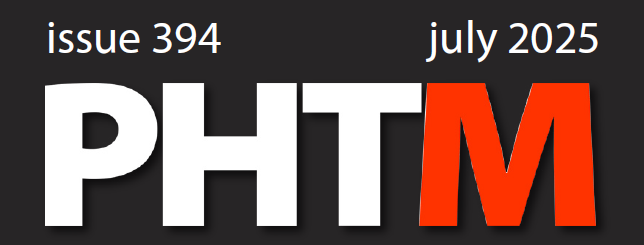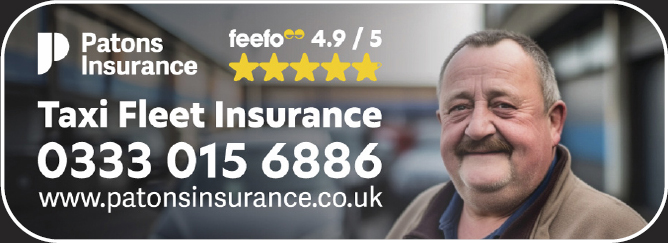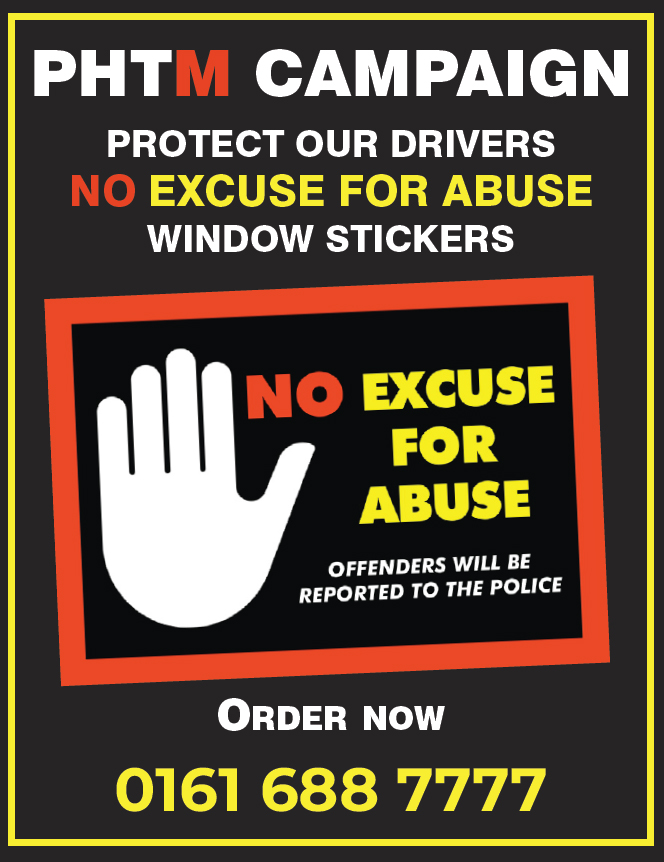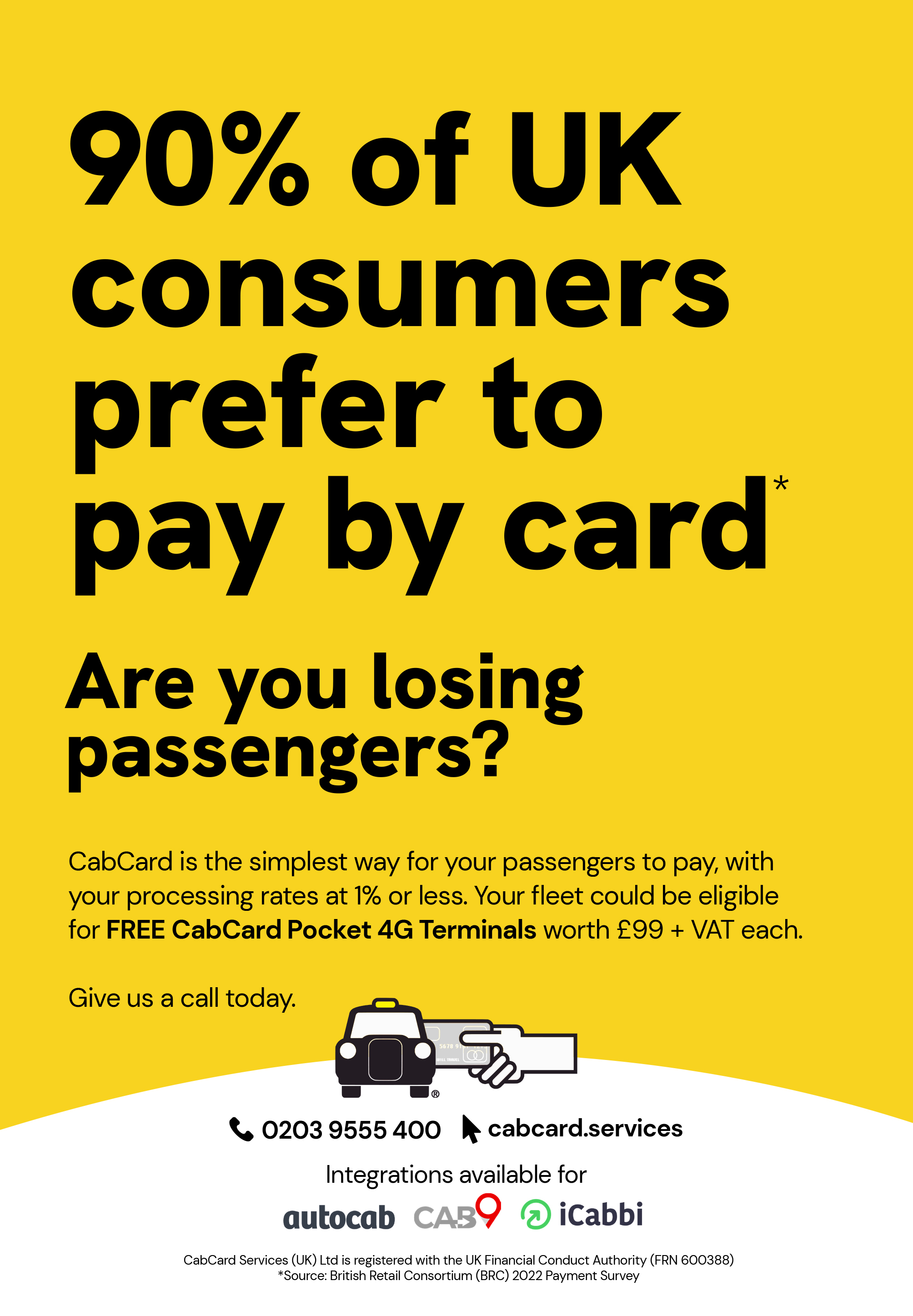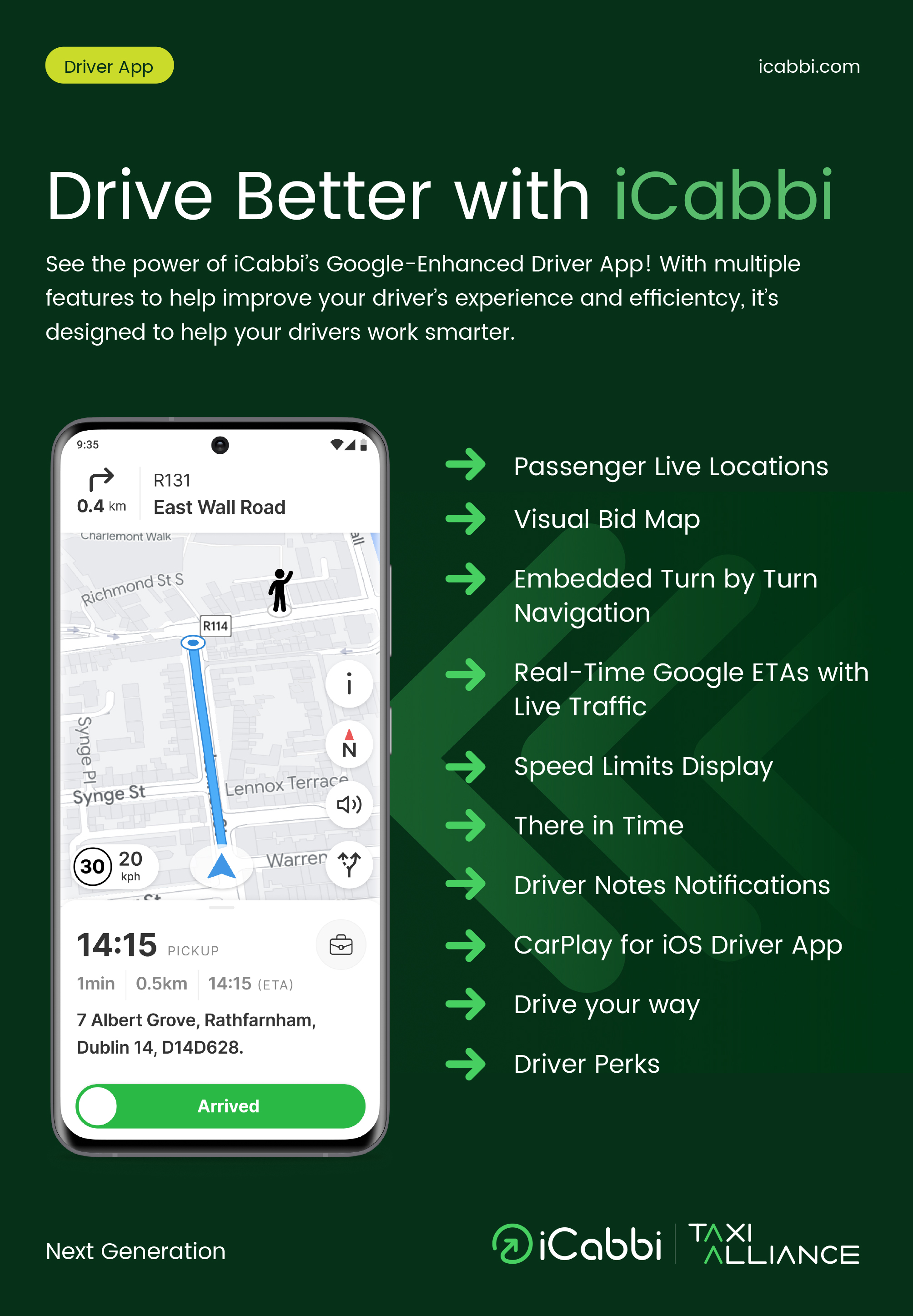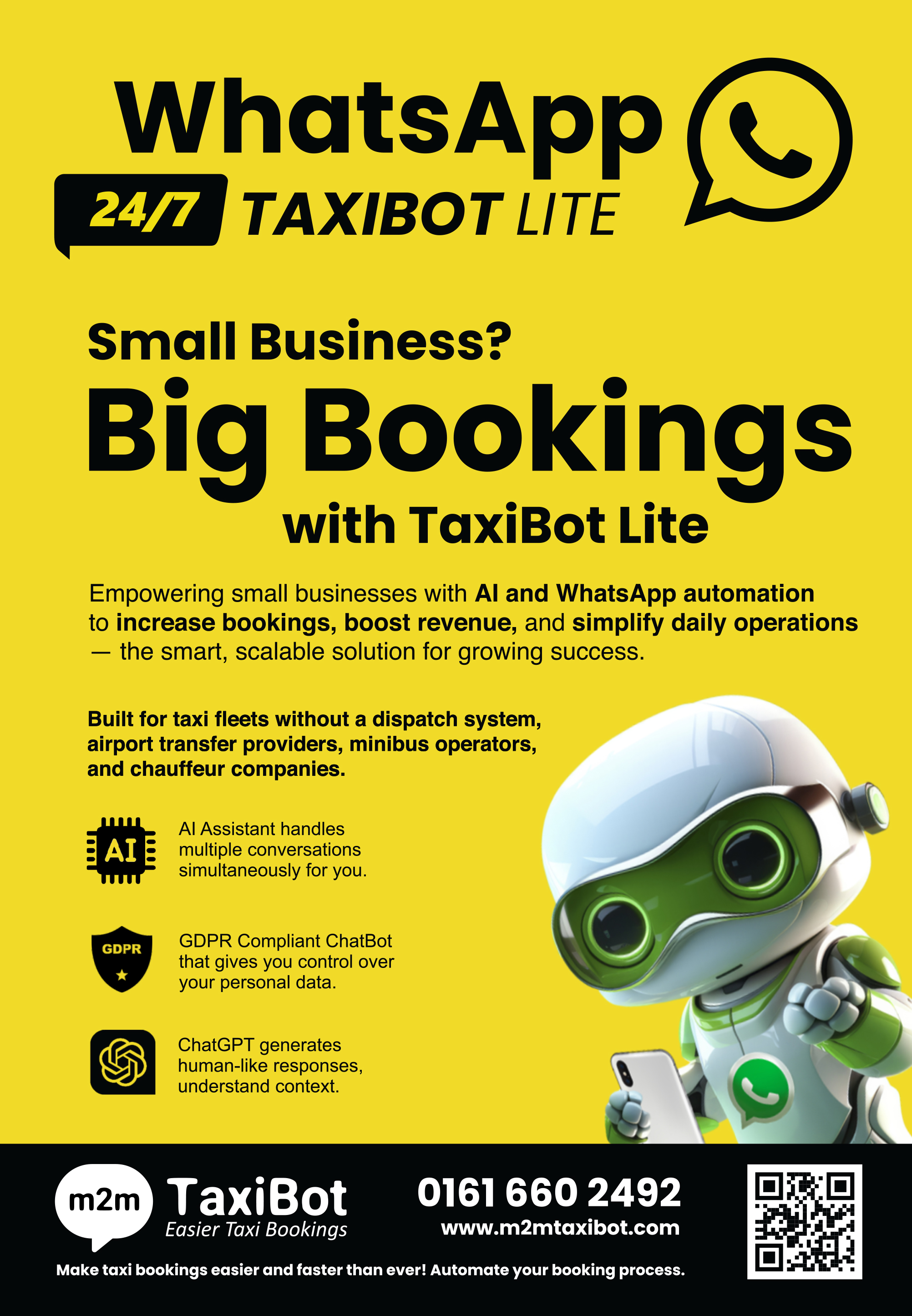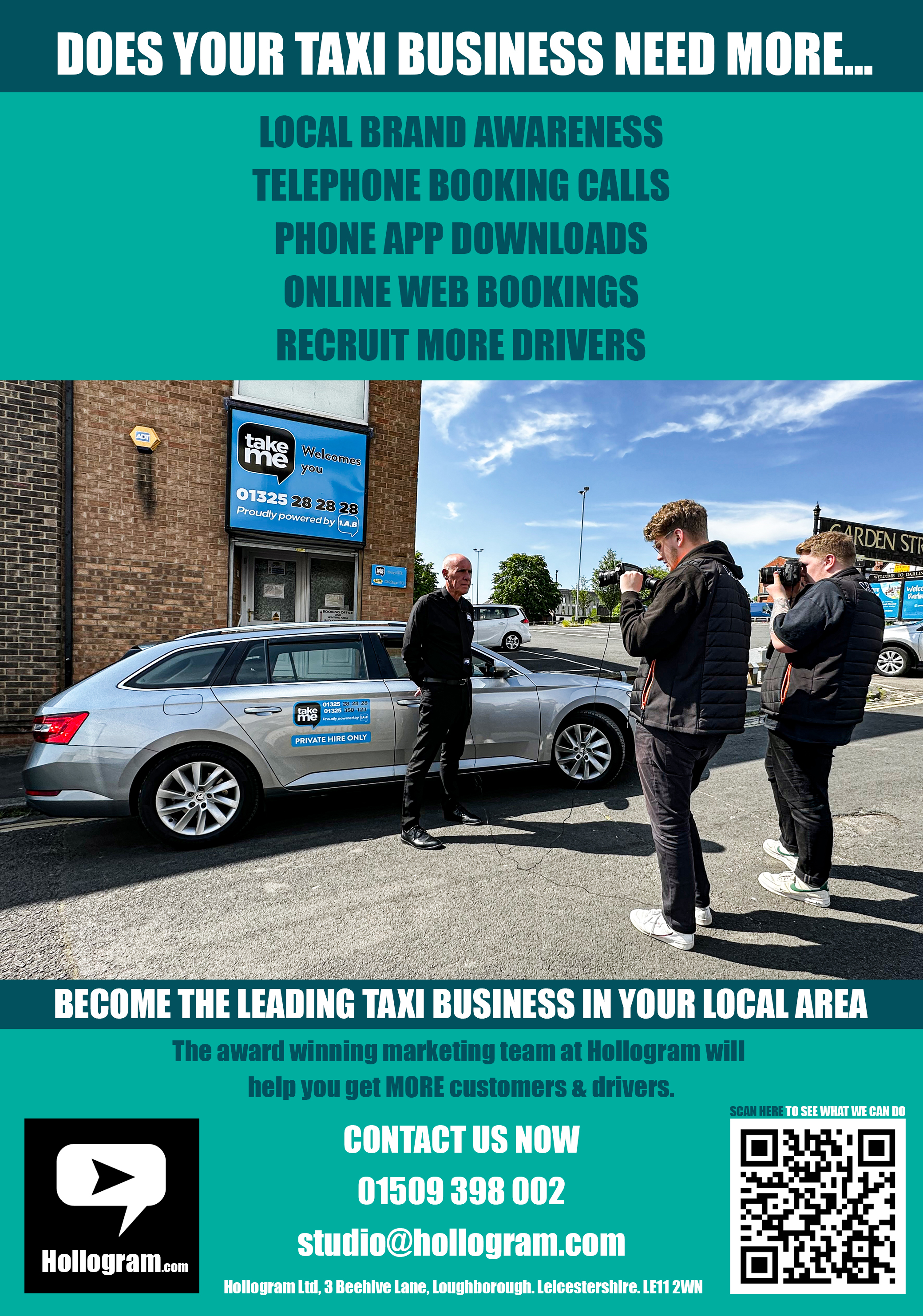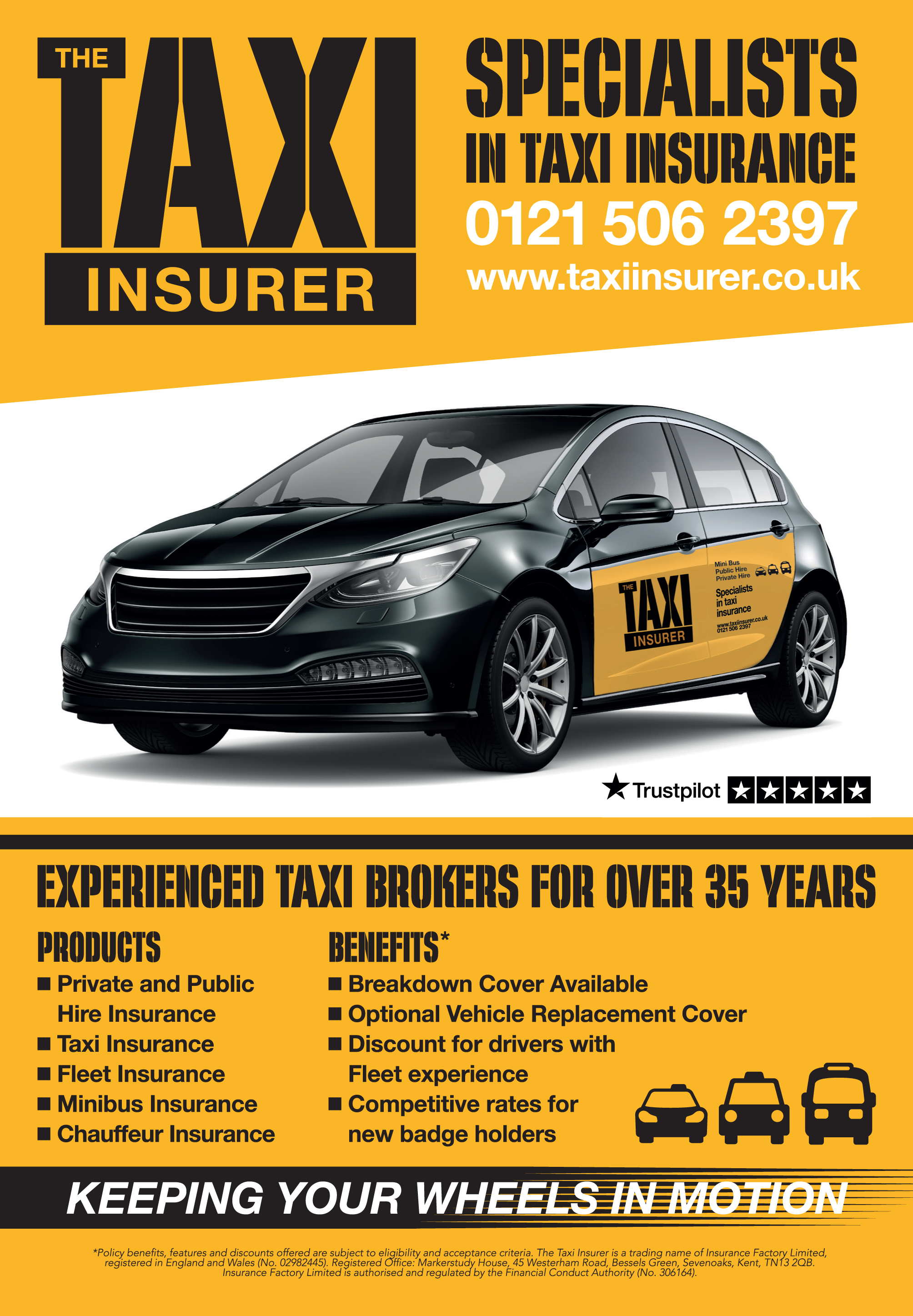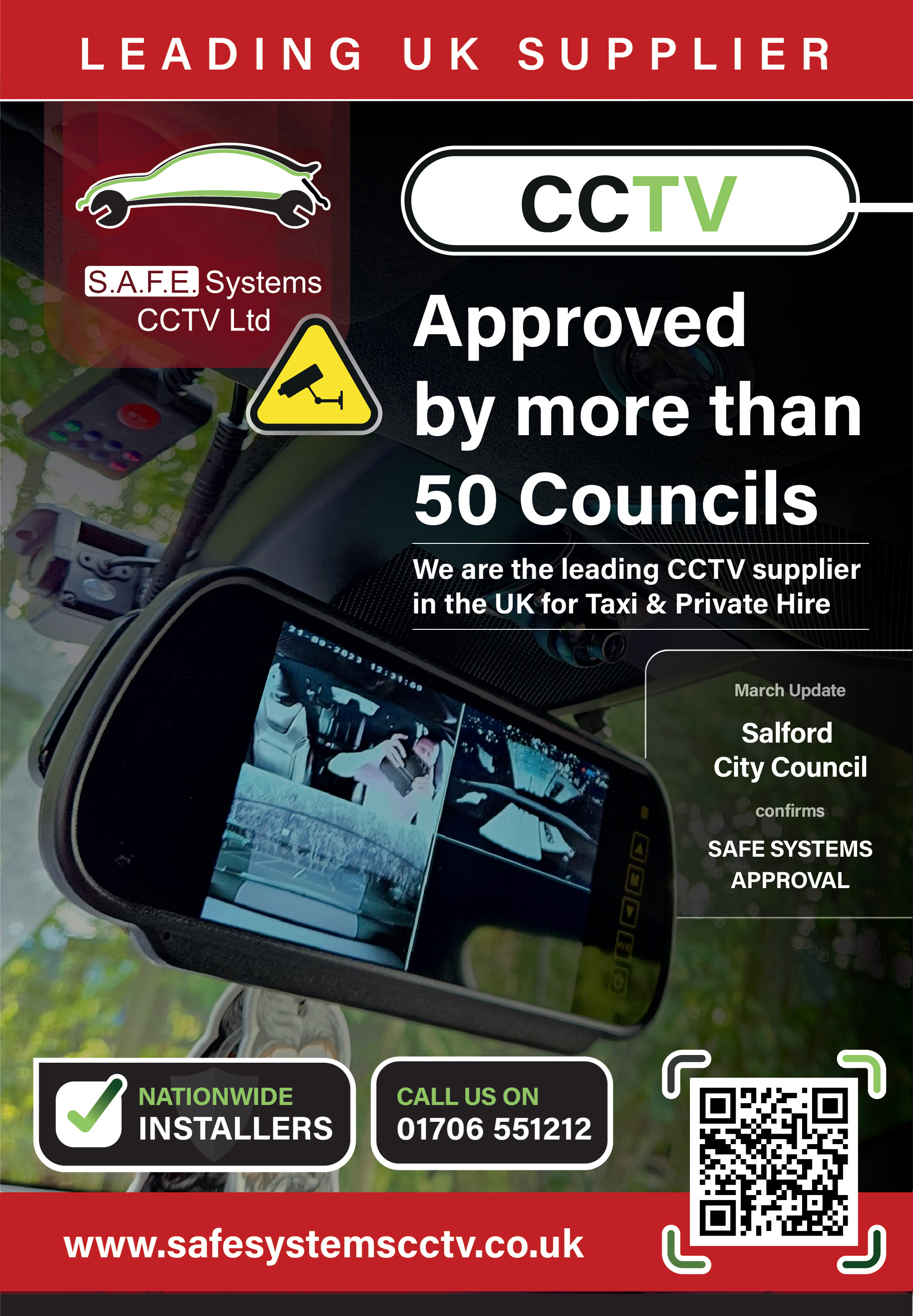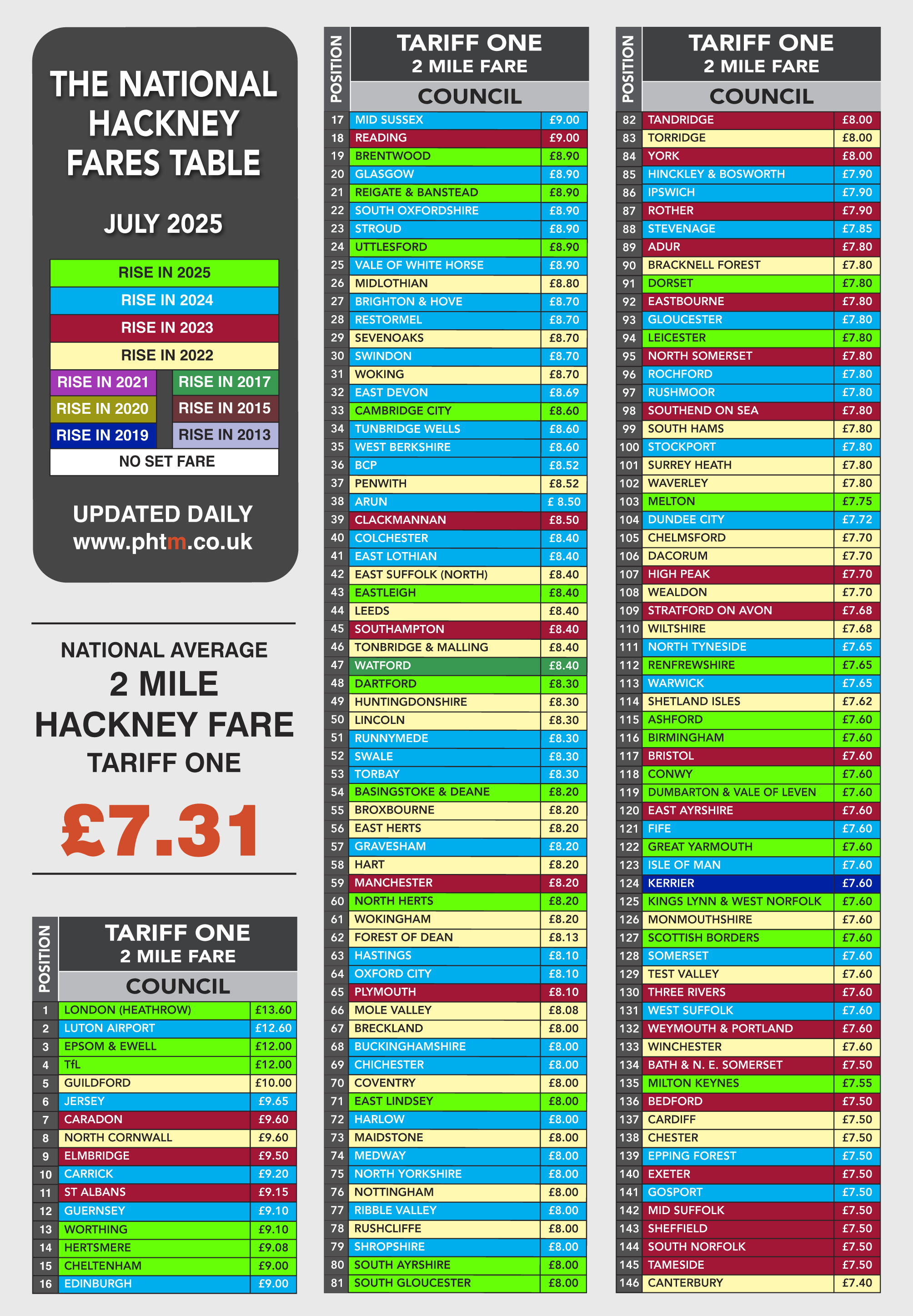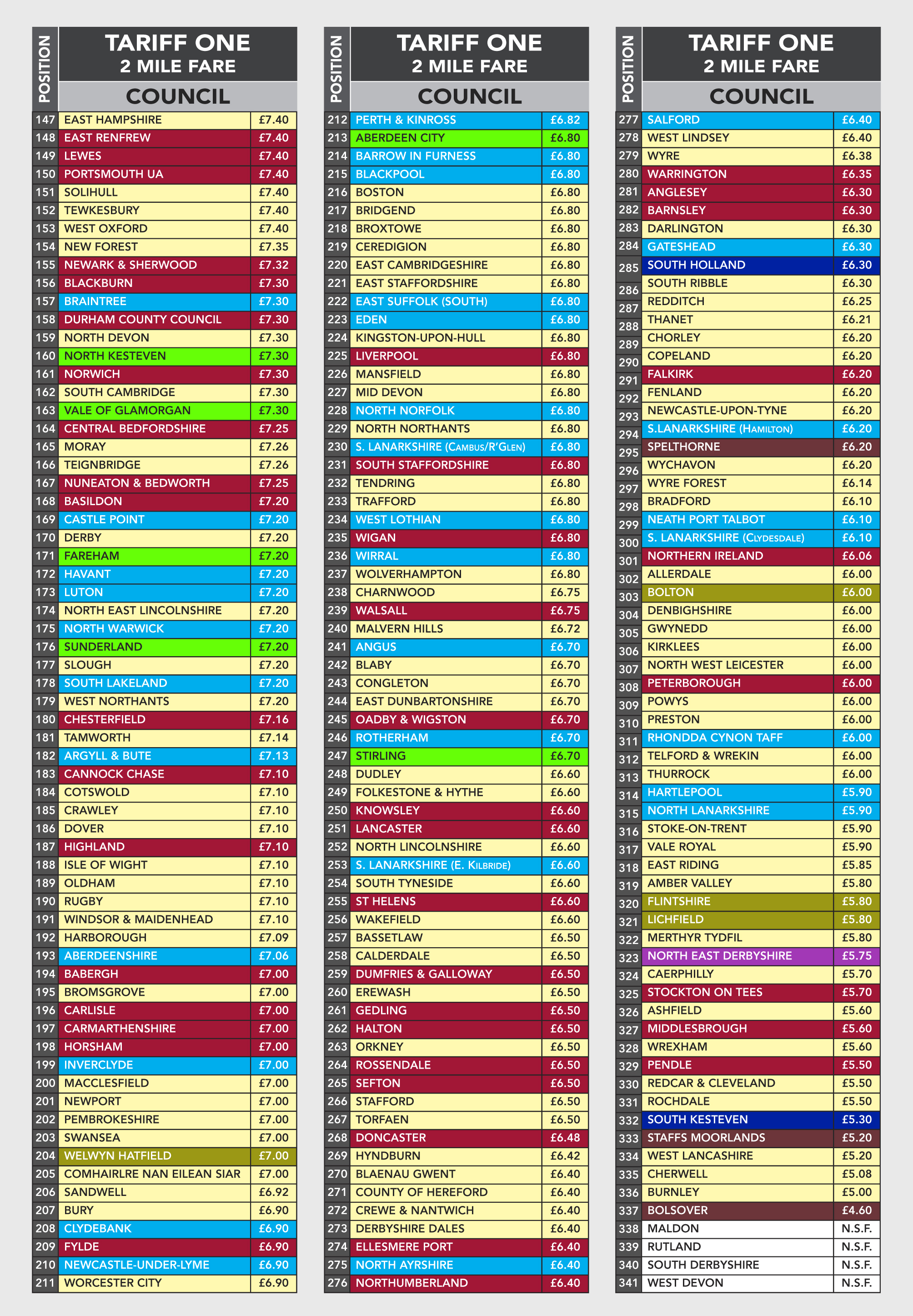
PHONE FRIENDLY VERSION - SCROLL VERTICALLY
EDITORIAL FEATURES
Click each article to go directly to story
- ALL THINGS LICENSING
by Mike Smith - BRIGHTON CAB TRADE VIEW
by Andy Peters - iCABBi EXCHANGE
- KNOW YOUR RIGHTS
by Patterson Law - CROSS-BORDER: CHANGE COMING
by Dave Lawrie - PRIVATE HIRE: MAKE A DIFFERENCE
by Rev'd Paul Newbery - POWERFUL AD CAMPAIGNS
- SECURE PAYMENT LINKS
by CabCard Services - SOCIAL MEDIA SAVVY
by Phil Holloway - WHATSAPP TAXIBOT LITE
by M2M TaxiBot
NEWS FEATURES
Click each article to go directly to story
- BERNIE THE BOOK
- BUSINESS NEWS
- CALLOUS CABBIES
- CCTV: YOUR SECURITY
- CHARITY CORNER
- CLASSIFIEDS
- FIT AND PROPER
- HACKNEY FARES LEAGUE TABLE
- ICO UPDATE
- JUST DESERTS
- PROTEST PLIGHT
- ROUND THE COUNCILS
- ROBOTAXIS
- SHAME SHAME
- TERROR TIMES
- UBER UPDATE
- WORLDWIDE TAXI FOCUS
All advertisers must comply with the British Code of Advertising practice. The views expressed in this publication are not necessarily those of the publishers. All rights reserved.
CROSS-BORDER CRISIS
by Dave Lawrie Director NPHTA info@nphta.co.uk
TALK IS CHEAP – IS THE WAITING OVER?
For many years now we have written articles, held seminars, had meetings with decision makers and been pushing for change, pushing for national standards and pushing to be recognised. Finally, we are now seeing discussions take place where it matters, at parliamentary level, including the Devolution White Paper, the Task And Finish Report, the Best Practice Guidance, and now more recently…
THE CASEY REPORT
On 6 June, we saw the release of the Casey Report which detailed 12 recommendations. This was then debated within Parliament on 16 June, and can be seen here for those with a little time on their hands: https://www.youtube.com/live/-jMEzVvGqL8. Watch the first 1 hour and 50 minutes; that alone is a huge discussion to be held in Parliament on matters that affect the taxi and private hire industry.
The Casey report of course is focused on child grooming and CSE, the various sectors which were allegedly involved, and the regulatory bodies that had received reports, and effectively turned a blind eye. This has then naturally led to various discussions on national news outlets, and on most social media outlets, but what does this mean for us as an industry?
To be perfectly clear here, there were 12 recommendations within the report which were aimed at all other sectors responsible for the horrific grooming scandal, the only section of the report that mentioned taxi and private hire at all was Chapter 7: Taxi Licensing and Child Protection Measures, recommendation 11, which stated:
“The DfT should take immediate action to put a stop to ‘out of area taxis’ and bring in more rigorous statutory standards for local authority licensing and regulation of taxi drivers.”
Government response:
“The DfT will legislate to address the important issues raised in the report, tackling the inconsistent standards of taxi and PHV driver licensing.
- •We will work as quickly as possible and consider all options – including out of area working, national standards and enforcement – seeking the best overall outcomes for passenger safety.
Let us be absolutely clear here, whilst “out of area working”, or cross-border as we know it, is an issue, and absolutely needs to be addressed, as do national standards and enforcement, this has absolutely nothing to do with grooming at all, since grooming has been a tragic and horrific issue for over 40 years, whilst cross-border working has only really appeared since around 2012 - oddly enough, the same year that the Rotherham Casey report concluded.
So, whilst this bullet point is welcomed, it is wrong to suggest a connection between the two issues.
- •In the interim we will act urgently to make improvements, including consulting on making local transport authorities responsible for taxi and PHV licensing, and determining how existing statutory guidance can be strengthened to further protect the public.
We suspect that this means the Devolution White Paper consultation will be released sooner rather than later, since this is exactly what this point means, the end of local licensing authorities, with the introduction of Mayoral controlled licensing.
- •We are also reviewing authorities’ compliance with existing guidance and will hold those who do not follow it to account.
Whilst there were some errors within the DfT Best Practice Guidance of 2023 found here: https://shorturl.at/LTMQ1, including not counting children under three as passengers, tinted window percentages, and the frequency of Group 2 medicals, we believe that the guidance should have instead been statutory standards in order to place more duty on local authorities to observe them. Whilst “some” local authorities did assess and adopt the new guidance, most did not, so with that in mind, maybe Statutory Standards would have been better.
OUT OF AREA WORKING
Will this mean:
A) Putting measures in place to enforce the LGMPA 1976, which prevents a private hire vehicle from being “available for bookings” once cleared outside of their licensed area?
Whilst this is an active part of legislation, it is very rarely enforced, and is therefore practically ignored, but actually, this is very close to being the ABBA rule, where all journeys must start or end within the licensed district, since it would mean that all drivers must return to within their licensed district before being able to receive any new bookings.
This could be achieved quite simply, if local authorities were to introduce and implement a new condition to private hire operators licences, that they must GEO fence their operations, meaning they would not be able to pass work to any driver or vehicle that was located outside of the council’s boundary.
There is some resistance to this approach, more so due to the push for clean air zones and reducing emissions, therefore those opposing this approach would suggest it to be a waste of fuel.
The result of course being that many drivers licensed hundreds of miles away, are actively working full time in remote areas, and this simply must stop.
B) More active enforcement of operators making direct use of vehicles licensed elsewhere (breach of the triple lock rule)?
To clarify, the triple lock rule clearly states that all three licences, the driver, the operator and the vehicle, must be licensed by the same council. An operator licensed by one council, may categorically NOT make use of any driver or vehicle that is licensed by any other council.
What we are seeing, is that some operators merely hold an extra piece of paper, an operator’s licence issued by a different council, but are not sub-contracting to their partner operator to comply with the Deregulation Act 2015, they are instead making direct use of drivers and vehicles licensed elsewhere, this is an offence, and is enforceable, but is it provable?
Repeal the Deregulation Act 2015.
We have seen reports that some suspect the “interim measure” is to remove the subcontracting abilities, or to “repeal” (cancel) the Deregulation Act 2015. We have seen no mention of this idea from any official source and therefore do not believe that this is a valid concern. But of course it is something that we will watch, and would object to it if it was suggested, since in truth, the Deregulation Act is NOT the cause of cross-border working. Despite the belief of many, including national press outlets, the Deregulation Act only allowed for one operator to “sub-contract” to another operator, plus it regulated the duration of licences. The act itself did nothing more, and it most certainly did NOT allow for permanent remote working, nor did it allow for an operator to make use of drivers or vehicles not licensed by the same council, (triple lock rule).
C) Could we see a change in legislation to roll-out the intended use policies to all licence types? (currently may only be applied to hackney carriages)
An intended use policy does not “stop” any driver or vehicle from fulfilling bookings outside of their licensed area completely, it simply introduces a condition that all licence holders must be “predominantly,” (mainly) used to provide a service within their licensed area.
This was introduced for hackney carriages in many areas, including Rossendale, where there was a massive influx of drivers being licensed there and then being used all over the UK, as we currently have from other areas right now. With the simple change to policy and conditions, the number of drivers licensed by Rossendale dropped from just over 4,000 to less than 400, and the number of licensed vehicles dropped from 3,196, to 153 within one year.
Intended use policies work!
The shift has changed now from hackney carriages to private hire vehicles, which means that to achieve this, there would need to be a change in legislation.
D) Will it see an end to licence shopping?
Without the above steps being taken, no it will not. If the above suggestions are acted upon, then yes it will, since there will be nothing to gain by being licensed elsewhere. If the majority of the work must be within the licensed area, (intended use), it would see an end to the flooding of areas by vehicles and drivers who were not licensed locally.
But is it cheaper?
Well of course it is! Remember that as we all know, a council may not make a profit OR a loss on licensing revenue (income), the department must be self-sufficient.
This means that where there are more drivers, vehicles and operators, the cost of a licence must be reduced to make sure there is no profit; but where there are fewer licences issued, the price must be higher, to cover the cost of running the service.
Human nature, and of course practical business sense, is to look for a good deal, just as we do for insurance, phone contracts, gas, fuel, electric etc, there is literally no difference here, so of course you will still go where it is cheaper. But how do we overcome that problem?
We might actually start to see local authority licence fees reduced, making it less attractive to licence shop, read on….
An “urgent end”
If as people are calling for, cross-border working does all come to an urgent end, then what will happen to all of those who have taken advantage of the “right to roam” and been licensed elsewhere? And if so, what exactly does “as quickly as possible”, as quoted by the government response above, actually mean?
Would this mean less drivers and vehicles?
Potentially not, since many of the drivers are actually local, they have merely migrated for a cheaper option. Although yes, we know it is not ALL about the cost, in some cases, it is also about the speed and efficiency of processing applications, and of course for some, it may also be due to localised conditions, such as age of vehicles, or knowledge tests.
But the reality is that if hundreds, even thousands of drivers return to their local authorities, then the local costs would also have to come down. The spin off to that of course would be that due to the massive reduction in those licensed elsewhere, the fees from that council would also have to rise!
NATIONAL STANDARDS & ENFORCEMENT: DEVOLUTION WHITE PAPER
We are not alone in our support and call for national standards; in fact, this is the very reason for the “Devolution” White Paper, which was released in December last year, as you may have seen Andy Burnham discussing more recently.
The idea behind national standards is that we currently have such a pick and mix of licensing conditions and policies throughout over 300 different local authorities, including:
For vehicles:
1. Varying colours
2. Varying age limits,
3. Fire extinguisher,
4. First aid kits,
5. CCTV cameras,
6. Tinted window restrictions,
7. Some that only provide a compliance test.
8. Their neighbours provide both the compliance and the MOT certificates.
9. Operator signage (none, or magnetic, or permanent stickers)
For drivers:
1. Local area Knowledge tests
2. Overseas records checks
3. Safeguarding courses
4. Disability awareness training
5. Qualifications in passenger transport
6. Driver assessment courses.
It really is very confusing, and hardly surprising that licence shopping exists. So, the idea is to reduce this right down to around 80 mayoral authorities to take over this role nationwide using “devolved powers”. The hope of adopting national standards is to remove the desire to go elsewhere for a licence since they will all be the same - a “national standard”.
CONSULTATIONS ARE COMING YOUR WAY!
Will this mean an end to fire extinguishers, first aid kits, mandatory CCTV, tinted window restrictions, local area knowledge tests, extra courses for drivers? Or will the excessive restrictions that do exist in some places, be rolled out nationally?
What do National Standards look like?
Could we see a massive increase in overkill conditions? Maybe we will be subject to TfL conditions throughout the UK, despite the fact that London is the capital city of the UK, with huge numbers of tourists and attractions for them to visit, plus multiple airports, where such strict conditions may be necessary. But they may not be suitable for a little rural central Welsh town? Or could we see the opposite, where the conditions that are already much higher, would have to be reduced to comply with the new “national standard”?
CCTV
This subject is extremely relevant here since mandatory CCTV was introduced in 2014 in Rotherham, following the Casey report on Child grooming concluded in 2012. As we are examining the Casey report, this leads us to consider the possibility that the result may be a national roll-out of a CCTV condition, but will of course be subject to consultation first.
Remember of course, that Rotherham was not the first council to introduce CCTV as a mandatory condition of licence. That was Southampton in 2009, followed by Brighton and then Portsmouth, and more recently Guildford, Cambridge, South Cambridge, Lewes, Eastbourne, Mid Sussex, North East Derbyshire, Rossendale and more, none of which were mentioned within the Casey report. Yet other regions, such as Newcastle, Telford, Oldham and Rochdale, where they did have a grooming issue, did not introduce CCTV as a condition.
What is CCTV for?
Our message here is clear, having CCTV has been seen to prove beyond any doubt that the majority of allegations made against drivers are false. Actually, CCTV places the respect back in the industry, with you the drivers, since it is your line of defence against false allegations of rape, abuse, over charging, assault, theft, inappropriate behaviour and so much more.
The advantage of CCTV is that it also acts as a visible deterrent (where there is a monitor) to put potential attackers off.
CCTV is nothing to be afraid of, CCTV is your friend, not your enemy, your eyewitness, your defence and your protection.
It is undeniable evidence, it is cheaper than a solicitor, it is cheaper than having Baroness Casey doing a report; in fact, it is cheaper than replacing your glass (for those with tinted windows).
What will happen to existing conditions and local authorities?
The answer is, nobody knows for sure how this will roll- out, and what it means for us as an industry. However, one thing we do know for sure, is that when the consultations do go live, it is for ALL of YOU to get involved and have your say.
Speak now or forever hold your peace!
Will licence shopping come to an end?
No, since the cheaper option will still exist, or will it?
Will national standards stop vehicles and drivers from out of area working within these new regions?
No, since it will still be perfectly legal and legitimate to fulfil any pre booked journeys, anywhere in the UK, unless there is a change to legislation to adopt and mandate intended use policies.
What might well happen, is that the boundaries or “controlled districts” for hackney carriages will suddenly become huge, allowing taxis to rank up and be flagged down throughout a much larger area.
NATIONAL ENFORCEMENT
One other possibility is that national enforcement could be introduced, meaning that any officer from anywhere would be able to suspend or revoke any licence, regardless of where issued. This would effectively create a national licence, although this would need either a change in legislation, or to adopt an actual national licensing authority.
Under current legislation, only named officers may carry out enforcement activity on vehicles or drivers that are not locally licensed, it is not across council agreement, it is indeed “authorised officers” only. Any officer already has the power to prosecute for criminal activity, (breaches of the 1976 Act) they simply do not have the powers to enforce against local conditions that are not their own, or to suspend or revoke licences.
Whilst this might seem a promising idea on first glance, it will only work if the standards are indeed “national” and not regionalised to the newly adopted mayoral districts, assuming that is ever actually adopted.
THOSE TERRIBLE DRIVERS!
The one thing we do know, is that the Casey Report has 11 other recommendations, all of which relate to other sectors, police, councils, social services, health care and various others. When looking at the truth of the report, there were far more sectors that were involved in this horrific and ongoing issue; the taxi and private hire sector was very much a small minority.
Naturally we are not suggesting 100% innocence, but when considered against the 552,000 workforce in our industry, there will always be an occasional bad apple which we need to get rid of. Of course we already know public opinion that it’s only our industry that’s to blame for everything, so we need to be extra careful out there.
ENDING CROSS-BORDER WORKING
- • The Devolution White Paper won’t achieve this.
- • The Casey Report is not going to change it.
- • A change in legislation will do it, but how?
- • Roll-out the intended use policy to all licences – enforce section 75, 1(a) LGMPA 1976 – enforce existing legislation.
Let us get local services back to being LOCAL!
We encourage you to contact your MP, and most of all
JOIN NOW!
A UNITED TRADE IS A POWERFUL VOICE
ROBOTAXIS
TESLA’S ROBOTAXI DREAM TAKES FIRST RIDES IN AUSTIN, BUT ‘UNANSWERED QUESTIONS’ LINGER
A decade after CEO Elon Musk first made ambitious promises about fully autonomous vehicles, Tesla has finally launched its robotaxi service in Austin, Texas.
Driverless 2025 Model Y SUVs, operating on what Musk calls a new, “unsupervised” version of Tesla’s Full Self-Driving software, began ferrying select passengers for a flat fee of $4.20 on June 22.
This rollout marks a significant test for Musk’s controversial vision of deploying self-driving technology using solely cameras and end-to-end AI, a strategy that sets Tesla apart from competitors such as Waymo, which integrate additional sensors such as LiDAR.
The service is slated to operate daily from 6am to 12am, though “may be limited or unavailable in the event of inclement weather.”
Notably, despite the “driverless” billing, a Tesla employee will occupy the front passenger seat as a “safety monitor.” The precise role and intervention capabilities of these monitors remain unclear, raising questions about the true level of autonomy in this initial commercial phase.
Historically, other AV companies have utilised human safety operators during testing, not commercial operations.
The robotaxi service is starting small, as confirmed by Musk, with an initial fleet of around ten vehicles confined to a narrowly defined area of South Austin. While Tesla has provided basic information on its robotaxi page, including app usage and lost item procedures, it “still glosses over the kind of specifics that Waymo has historically provided.”
The launch represents a pivotal moment for Tesla as it seeks to finally deliver on its long-standing autonomous driving ambitions.
AMAZON’S ZOOX ACCELERATES ROBOTAXI PRODUCTION, TARGETS 10K UNITS ANNUALLY BY 2027
Amazon is making a significant push into the burgeoning AV market, announcing plans to produce up to 10,000 robotaxis annually by 2027 at its new 220,000-square-foot Zoox factory near Silicon Valley.
This ambitious move signals a direct challenge to Waymo’s estab-lished dominance and intensifies the race as Tesla also vies for a slice of the self-driving taxi industry.
The production facility, unveiled on June 18, marks a pivotal step in Amazon’s long-term investment in pioneering vehicle technology, an effort that dates back to 2009 when rival Waymo began its secretive work within Google.
Amazon cemented its entry into the self-driving cab business five years ago with a $1.2 billion investment in startup Zoox. Zoox aims to launch its commercial ride-hailing service in Las Vegas later in 2025, with plans to expand to San Francisco thereafter.
The company’s unique, carriage-like vehicles, designed with seating for up to four people and no steering wheel or pedals, aim to differentiate themselves from Waymo’s offerings, which typically integrate self-driving technology into traditional car models from established automakers.
While Zoox currently produces only one robotaxi per day at its high-tech Hayward facility, officials stated their ambition to scale up to three vehicles per hour in the future. By 2027, the company anticipates manufacturing 10,000 robotaxis annually to support a growing fleet across major cities.
Waymo, a subsidiary of Google’s parent company Alphabet, has a considerable head start, having launched robotaxis in Phoenix nearly five years ago and charging riders in San Francisco since 2023. The company has since expanded to LA and Austin, reporting over 10 million paid rides. Waymo also announced plans to begin testing its robotaxis in New York City and expects to expand operations to Atlanta and Miami.
As competition heats up, the focus remains on mass production and scaling operations to meet the demands of an expansive robotaxi fleet. Amazon believes its new plant, spanning the equivalent of 3.5 football fields, is the answer to this manufacturing challenge, positioning Zoox as a major player in the evolving landscape of urban autonomous transportation.
DRIVERLESS TAXIS AND BUSES TO HIT UK ROADS A YEAR EARLY IN 2026 BOOST

The future of UK transport is accelerating, with self-driving taxi and bus services set to begin piloting on England’s roads in spring 2026 - a full year ahead of schedule.
This fast-tracked initiative underscores the Government's ambition for the UK to be at the forefront of AV technology. Firms will be permitted to trial small-scale “taxi- and bus-like” services without a safety driver, potentially allowing the public to book these vehicles via an app. This precedes a wider rollout anticipated from the second half of 2027, when the full Automated Vehicles (AV) Act is expected to become law.
The DfT stated bringing forward these pilots will be a significant economic driver, forecasting the creation of 38,000 jobs and an industry worth £42 billion by 2035.
Transport Secretary Heidi Alex-ander stated: “The future of transport is arriving. Self-driving cars could bring jobs, investment, and the opportunity for the UK to be among the world-leaders in new technology.”
She emphasised that “road safety would be at the heart” of both the trials and forthcoming legislation. The AV Act will mandate that self-driving vehicles achieve a safety standard at least as high as that of competent human drivers and undergo rigorous testing.
The DfT believes that self-driving vehicles can help reduce deaths and injuries on the roads. Beyond safety, these vehicles are envisioned to enhance transport options, particularly in rural areas, boosting connectivity, improving mobility and independence for those unable to drive.
The UK has been a hub for self-driving trials since January 2015, with British companies Wayve and Oxa leading significant advance-ments. Wayve recently secured over $1 billion in investment and announced partnerships with Nissan and Uber, while Oxa has supported “bus-like” services in the US and implemented self-driving vehicles for baggage handling at Heathrow Airport.
lex Kendall, co-founder and CEO at Wayve, welcomed the accelerated timeline. “Accelerating commercial self-driving pilots to 2026 positions the UK as a leading destination for the deployment of L4 self-driving technology,” he said.
“These early pilots will help build public trust and unlock new jobs, services, and markets. For Wayve, this means we can prioritise the UK for early deployment and help deliver safer, cleaner mobility to the UK.”
Gavin Jackson, Oxa’s CEO, believes that “clear rules” will stimulate the market and encourage transport companies to embrace the benefits of autonomous vehicles nationwide.
He concluded: “Today’s announcement shows that Britain is ready for this technology.”
Meanwhile, Uber has announced a landmark trial in partnership with UK tech firm Wayve. Uber, which sees London as its largest European market, plans for these AVs to be bookable via its app.
A broader rollout of these “robotaxis” is anticipated once the AV Act fully takes effect in late 2027. In accelerating its timeline, the UK has drawn lessons from established driverless taxi services in cities such as San Francisco and various locations in China.
However, the impending arrival of robotaxis has sparked concern among some, particularly regarding the future of existing taxi and private hire/Uber drivers.
Labour’s transport spokesperson in the London assembly, Elly Baker, warned: “Although jobs might be created building and managing driverless cars, existing taxi and private hire drivers shouldn’t risk being left behind.”
Black cab drivers, long accustomed to market shifts, appear largely unperturbed. Steve McNamara, General Secretary of the Licensed Taxi Drivers’ Association, dismissed the plans as unrealistic. “They are living in fantasy land. We’re probably going to have flying taxis before we have autonomous ones in London,” McNamara quipped.
He questioned public trust, adding: “Are people who don’t trust a robot to cut their grass or clean their house going to trust one to take their kids to school or drive their elderly mum around?”
McNamara remains unconvinced, stating: “I’m genuinely not worried. Come back to me in 2040.”
SECURE PAYMENT LINKS
WHY MORE FLEETS USE CABCARD’S PAYMENT LINKS FOR SMOOTHER BOOKINGS AND REAL SUPPORT
by CabCard Services www.cabcard.services
As a fleet operator, you don’t just manage vehicles. You manage people, payments and problems. And when it comes to your drivers getting paid, every minute counts. That’s why fleets across the UK are turning to CabCard for their secure Payment Links. It’s a flexible and fast way to collect a card payment, backed by the best support in the business.
Whether you’re handling long-distance jobs, airport transfers, or account work, CabCard Payment Links give you the tools to protect your time, your revenue and your reputation.
Get paid upfront, especially for long or out-of-area jobs
Some jobs are too valuable to leave unpaid. For out-of-area journeys or longer airport runs, it’s not uncommon for drivers to end up out of pocket if a passenger cancels or they simply don’t show.
CabCard Payment Links help you:
- • Send from your office to take secure pre-payments or deposits before the job begins
- • Send a simple link branded in your fleet name via SMS, WhatsApp or email with no app required
- • And if you’re an iCabbi system user, you can automatically ‘hold’ your vehicle from being dispatched until payment for the journey has been made by your customer
This is ideal for fleets doing business account work, executive transfers, or airport pickups. You reduce risk, speed up payment, and make sure every journey is paid for in advance.
Also a reliable backup for drivers
Payment links are also a great backup for individual drivers should their in-vehicle terminal fail for any reason. CabCard’s Payment Links offer a quick and easy fallback that keeps the job moving forward.
Drivers can simply:
- • Generate a link or QR code from the CabCard app or driver dashboard
- • Share it with the passenger in seconds
- • Get paid fast, with next-working-day payout available
Some drivers even prefer using links for specific jobs like late-night pickups or remote drop-offs.
Why fleet support matters more than ever
Here’s the part most payment providers would prefer not to talk about: support.
How CabCard is different:
- • UK-based support team ready to talk to you and / or your drivers
- • Dedicated account manager who knows your fleet and understands your needs
- • Fast, friendly help from payments people who specialise in taxi businesses
Smart, simple and built for taxi fleets
CabCard Payment Links come with all the features that a taxi fleet needs.
- • Stand alone or Integrated with iCabbi for smarter dispatch and automated flows
- • No setup fees or hidden costs, transparent pricing that works
- • Branded with your fleet logo, professional look and feel to give passenger confidence
With fast payouts, simple tracking, and full visibility through a web based free fleet portal and dashboard, you stay in control.
Your time is valuable
Whether you want to avoid ‘no-shows', get paid in advance or need a reliable backup, CabCard Payment Links are the tool for every modern taxi fleet.
Call CabCard on 0203 9555 400 today.
ICO UPDATE
UPDATE FROM THE ICO: DATA USE AND ACCESS ACT 2025

The Data (Use and Access) Act 2025 (DUAA) received Royal Assent and became law on 19 June 2025.
The DUAA is a new piece of legislation that updates some existing laws about digital information matters. It amends, but does not replace, the UK GDPR, the Data Protection Act 2018 (DPA) and the Privacy and Electronic Communications Regulations (PECR), making it easier for UK businesses to grow and innovate their products and services, whilst still protecting people’s personal information and their rights.
Most of the changes offer organisations an opportunity to do things differently, rather than requiring them to make specific changes to comply with the law.
There is a requirement for organisations to have a process to help people who want to make complaints about how their personal information is used, but this won’t come into force straight away, so there’s time to prepare and the ICO will have guidance to help organisations.
The law will also place new duties on the ICO to:
- • promote innovation and growth;
- • recognise the importance of preventing and detecting crime;
- • safeguard the public and national security; and
- • recognise that children merit specific protection regarding their personal information.
When will the changes happen?
The changes will be phased in at different points over the next 12 months and the ICO will be publishing regular updates on its website to give organisations certainty on what they need to do and when.
In the meantime, all website guidance relevant to DUAA changes will explain that the law is changing and where to find out more information.
Organisations can find out how the DUAA can help make things easier and understand if any of the changes apply to them by reading ICO’s announcement and guidance on the ICO website - Data (Use and Access) Act 2025 | ICO: https://shorturl.at/u9Gy3
The ICO has also published a press release on its website: UK organisations stand to benefit from new data protection laws | ICO: https://shorturl.at/Eef37
Finally, its business advice service can answer any questions or help: https://shorturl.at/hUW5X
HISTORIC DAY FOR WAKEFIELD TAXI AND PH DRIVERS
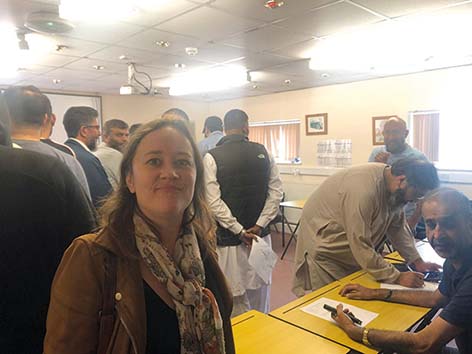
In December 2018 a “landmark” court ruling found Wakefield Council has been overcharging for licensing fees for years.
The High Court in Leeds found that the amount of money the council had demanded from drivers was unlawful, and that the council should reimburse them all, backdated to 2004.
Solicitors are now finally meeting with Wakefield cabbies this week, to calculate their individual restitution compensation claims against Wakefield Council.
Jen, Chair of the Green Party for West Yorkshire & Leeds came to speak to Wakefield cabbies about their restitution claim and said she was pleased to see justice in action following their successful deputation to Wakefield Council.
Yasa Ahmed, Chair of Wakefield Taxi Association, told PHTM: “We would like to thank David Lawrie Director of NPHTA, for being part of the deputation at the full council meeting which paved the way towards a settlement.
“We are now calling all Wakefield taxi and private hire drivers to collate their documentation and lodge their claims.”
Dave Lawrie added: “NPHTA is always ready to support and assist the trade, and we thank the local trade association and Yasa for inviting us to be a part of these proceedings.”
FIT AND PROPER
BOLTON UBER DRIVER’S LICENCE REVOKED AFTER SERIOUS COMPLAINT OF SEXUAL NATURE
A Bolton Uber driver, who had held his licence for only three months, has had it revoked following “serious complaint[s] of a sexual nature” from a female passenger.
Bolton Council’s licensing committee considered allegations that the driver acted in an “inappropriate sexual way.”
The alleged incident led to a hearing in April and the minutes from that meeting have been recently published by the council.
“The committee found that on consideration of all the evidence, on the balance of probabilities, the driver did act in an inappropriate sexual way towards a female passenger in his vehicle and also found the detailed account by the passenger complainant to be credible,” the report stated.
The committee unanimously voted to revoke his licence with immediate effect, citing public safety concerns due to the serious nature of the complaint.
BEDFORD TAXI DRIVER LOSES LICENCE OVER ABH AND COERCION CHARGES
A Bedford taxi driver has had their licence immediately revoked after being charged with “coercive and controlling behaviour and ABH,” Bedford BC announced following a General Licensing Committee meeting on June 19.
In another significant case, a driver’s renewal application was refused after it was discovered they had received a police caution for battery following a domestic incident - an offence they’d failed to disclose for the second time.
A licence renewal was denied for a driver who picked up passengers without a booking. The council noted the driver’s “denial and elaborate attempts to offer alternative explanations” worsened the seriousness of the breach.
Another driver lost their licence after striking a father and child at a junction, with the council citing failures in driving standards and reporting duties.
Two other drivers were ordered to complete training following complaints of poor driving and collisions involving pedestrians.
MIDDLESBROUGH PH DRIVER LOSES LICENCE AMIDST ‘THROAT GRAB’ CLAIM & ‘SEXUAL VIOLENCE’ THREATS
A PH driver, who claimed he was grabbed by the throat during an unbooked fare, has had his licence revoked by Middlesbrough Council’s Licensing Committee.
The decision, made months before his licence was due to expire, stems from what councillors deemed “abusive and threatening” messages, including a “serious threat of sexual violence,” sent to a female passenger.
The driver, licensed in May 2024, had his account suspended by his operator in January 2025 after taking a direct booking and messaging the passenger privately.
While the driver alleged the messages began as requests for payment, the council’s minutes confirmed they escalated into “abusive and threatening” content.
During an interview with licensing officers, the driver recounted an incident where a man allegedly “grabbed him by the throat” and forced him to transport a man and woman. He claimed he complied “out of fear” and that the woman provided her number for payment.
He further alleged his phone was later taken and only returned after he drove them to another location.
Despite his claims of being blackmailed and believing he was communicating with a man, the committee found “inconsistencies in the driver’ s account of events.”
The committee’s minutes state: “The committee believed that the nature and seriousness of the driver’ s messages, specifically the threat of sexual violence, was a risk to public safety, and that the driver was not a ‘fit and proper’ person, therefore, the decision was made to revoke the driver’s licence with immediate effect.”
WEST DUNBARTONSHIRE TAXI COMPANY FACES LICENCE REVOCATION AMID COMPLAINTS
Wright Taxis, a prominent taxi firm operating out of Alexandria for over a decade, is facing a critical hearing that could see its licence suspended or revoked.
The company has been summoned to a special hearing on Thursday, June 19, following a series of six complaints lodged by the local authority’s Civic Standards Licensing Officer.
The council’s licensing committee will deliberate on the nature of these complaints during the meeting. While the specific details of the grievances will be revealed at the hearing, the licensing officer has indicated that action can be taken if management or another responsible person is no longer deemed “a fit and proper person to hold the licence.”
More than half of the complaints are reportedly directed at four specific taxi plates owned by the firm, with two additional complaints concerning the company’s offices.
Wright Taxis, which began operations in October 2009, has seen significant growth, expanding its fleet from 15 to 45 vehicles in less than a decade.
UNLICENSED IPSWICH HACKNEY CARRIAGE DRIVER ORDERED TO PAY OVER £2,000
An Ipswich taxi driver has been ordered to pay more than £2,000 after being found guilty of driving a HCV without a valid hackney carriage driver’s licence.
The driver, Ticu Dan Calin, was found guilty in his absence of the offence at Ipswich Magistrates' Court on Monday 16 June 2025.
Mr Calin’s combined HC and PH driving licences were revoked earlier this year on 7 March 2025 on the grounds of public safety following multiple allegations of dishonesty.
On 27 March it was reported to Ipswich BC that Mr Calin was continuing to drive a HCV without an appropriate licence. Mr Calin was found guilty in his absence and fined the maximum £1,000.
He was also ordered to pay a victim surcharge of £400 and prosecution costs of £760.41, with the total of £2,160.41 ordered to be paid within 28 days.
Cllr John Cook, Ipswich BC Portfolio Holder for Communities and Sport, said: “I’m pleased that the court backed us by fining the driver concerned and making an order for the costs incurred by the council. More importantly, it is right that Ipswich residents are protected from thieves and scammers.”
TRAFFORD CENTRE STING MEANS UNINSURED PH DRIVER TO PAY OVER £1,200 FOR ILLEGAL PLYING
A PH driver has been hit with a hefty £1,226 fine and penalty points after being caught red-handed operating illegally outside the Trafford Centre by an undercover council officer.
Anees Arif, 52, of Oldham, pleaded guilty to offences, including illegally waiting in a taxi rank and accepting an uninsured fare.
The sting operation was part of increased patrols by Trafford Council, prompted by concerns from taxi drivers over unauthorised vehicles using their ranks.
Undercover officers observed Arif’s vehicle, which was licensed by Sefton Council, parked in a designated taxi rank. Upon being approached for a lift to Altrincham, Arif agreed to a £13 fare.
At Manchester Magistrates’ Court, Arif pleaded guilty to illegally waiting in a hackney carriage rank, accepting an illegal fare on Barton Dock Road, using a motor vehicle while uninsured, and failing to wear his driver’ s badge.
He was fined £576, ordered to pay a victim surcharge of £230, and costs of £420, totalling £1,226. Six points were added to his driving licence but despite reaching the usual disqualification threshold of 12 points, Arif avoided a ban due to “exceptional circumstances.”
iCABBi: THE EXCHANGE
iCabbi launched The Exchange in May of this year. With the potential to encompass approximately 60,000 taxis in the UK, this network is undoubtedly the largest unified taxi pool available to passengers today. And it is all done through the local fleet.
This means that a local taxi firm, which uses iCabbi taxi dispatch technology, can now offer its passengers access to a local, national, and soon, a global network.
Critically, this collaborative approach to winning and retaining bookings for the taxi and private hire sector serves to push ride-hailing companies back from taking over passenger transport in cities and towns across the UK.
This problem is becoming increasingly significant as more and more councils issue licences to these app firms.
The Exchange works in one of two ways:
Dispatch networking
Trade to Win! Send bookings that you cannot service to The Exchange. Stop your passengers from using ride-hailing services. Take bookings from The Exchange to build extra demand for your fleet.
App Networking/Roaming
Every time your passengers leave town, you risk losing them to a ride-hail app. They download it while they’re away and use it when they get back home. Not anymore. With the iCabbi Exchange your passenger can use your app anywhere. So even when they’re away, your passenger is home on your app.
“When you book with a local cab company, the money stays in the community rather than driving the profits of a faceless multinational corporation.
“The taxi and PH industry has been serving our communities for over 120 years. We’re the ones who sponsor the local football teams, transport the elderly for free at Christmas and serve as the so-called fourth emergency services when our customers are in need,” said John Igoe, Managing Director of Mi Taxis, Nuneaton.
“We welcome the Taxi Exchange with open arms and are also fully supportive of Love Local Taxi.”
LOVE LOCAL TAXI MARKETING CAMPAIGN
To celebrate the fact that local taxi firms are now effectively nationwide, iCabbi is helping its customers with a localised national marketing campaign.
Sean Williamson, also known as Barry from EastEnders, hereon known as Taxi Barry, has been brought in to inform the general public that Local Taxi Apps can be used anywhere in the UK.
In addition, iCabbi is seeking to drive awareness of the commitment and value of local taxi and private hire firms to their communities.
The “Love Local Taxi’ campaign will see fleets around the country celebrate being local on 8 and 9 July.
Visit LoveLocalTaxi.com for more details and join in the fun!
PROTEST PLIGHT
PROTESTS AT TfL BOARD MEETING AFTER PH DRIVER DIED AMID LICENSING BACKLOG CHAOS
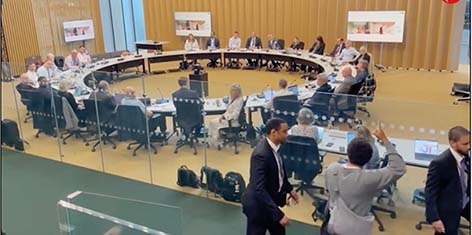
A TfL board meeting chaired by Mayor Sadiq Khan was dramatically suspended on 11 June as protesters confronted officials over a crippling licensing backlog that has left hundreds of private hire drivers unable to work.
The demonstration followed the tragic death of long-serving driver Robert Dale, 65, who suffered a fatal heart attack last November after months of stress and financial hardship due to TfL’s delay in renewing his licence.
Protesters in the public gallery repeatedly called on Mayor Khan to “remember Rob Dale,” asserting that Mr. Dale “had a heart attack due to the licence delay.”
One protester, escorted out by security, accused TfL of “exploiting” minicab drivers and displaying “double standards” compared to black cab drivers.
Mr. Dale, a married father of two, submitted his licence renewal application in August ahead of its October expiry. His family states that TfL’s three-month delay rendered him “anxious, highly stressed, hopeless and fearful.”
In a desperate email on October 28, he wrote: “Now I cannot earn a living, can’t pay my bills, can’t buy food - you as an organisation should be ashamed of yourself.”
He collapsed and died on November 10; his new licence arrived on November 27.
TfL Commissioner Andy Lord and COO Claire Mann, offered personal apologies at the board meeting for the delays. Mr.
Dale’s son, Ben, and his family, backed by the IWGB, are demanding TfL formally acknowledges the delays as a “significant contributory factor” in his death. They also seek a guaranteed right for PH drivers to have their licences automatically renewed on an emergency basis if processing delays occur.
Ben Dale’s letter to the Mr. Khan and Mr. Lord urged TfL to “stop treating this situation as a PR problem and begin treating drivers as human beings,” adding: “My father’s life - and the lives of so many others - cannot be collateral damage in a broken licensing system.”
Alex Marshall, President of the IWGB Union, condemned the situation as “nothing short of a national scandal.” The union is calling for immediate action, including the issuance of temporary licences to all affected drivers.
TfL's director of licensing, Helen Chapman, extended her sympathies, attributing the delays to new software and a cyber incident last year. TfL has since granted short-term PHV driver licences where appropriate.
GMB Union’s London Region is exploring a potential legal claim against TfL for loss of earnings, citing the financial impact of TfL’s licensing delays on its members having previously called TfL’s licensing system ‘not fit for purpose’.
Steve Garelick, GMB Regional Organiser, said: “TfL has acknowledged some drivers were impacted by system issues but this public acknowledgement doesn’t address the financial stress suffered.
“GMB is committed to exploring every avenue to seek redress for those unfairly affected.”
Meanwhile, following the board meeting Mr. Khan has endorsed calls from Lib Dem London Assembly Member, Gareth Roberts, for compensation for the drivers. Mr Roberts has been at the forefront of demanding urgent redress, highlighting numerous instances where drivers have faced dire consequences due to TfL’s processing failures.
“For months, I’ve been hearing from drivers across London who are at breaking point,” he said. “They’ve been locked out of work, forced into rent arrears, and in some cases made homeless - all through no fault of their own. This is a moral crisis as much as a bureaucratic one.”
Roberts detailed several cases during the recent questioning of the Mayor at City Hall, including a Richmond driver who became homeless, another waiting over 15 months for a licence, and one now in arrears despite applying five months in advance.
Roberts stressed: “The Mayor’s commitment to compensation is a welcome step but it must go beyond words. These drivers deserve more than apologies; they deserve real action, financial support, and an overhaul of a system that has failed them.”
He also pressed the Mayor on the urgent need for system reform and a timeline for resolving issues for drivers granted only short-term emergency licences.
PH: MAKE A DIFFERENCE
INNOVATING FOR COMFORT, SAFETY & SATISFACTION
by Rev’d Paul Newbery
The Elite Family
www.elite-liverpool.co.uk
In today’s rapidly evolving world of transportation, the private hire industry stands as a vital link, connecting individuals with opportunities, destinations and communities. The rise of ride-hailing apps, growth in urban populations and changing expectations have all contributed to a new era in passenger experience. To make a genuine difference for passengers in the private hire industry, it is necessary to look beyond the transactional aspects of travel and embrace a vision rooted in service, innovation and empathy.
Understanding passenger needs: the heart of private hire
At the core of every successful journey lies a clear understanding of passenger needs. While efficiency and affordability are fundamental, today’s passengers seek more:
- • Reliability and punctuality: passengers depend on private hire services for commuting, appointments, and social events. Delays or no-shows can disrupt not only their plans but also their trust in the service.
- • Safety and security: from the moment they book a ride to when they reach their destination, passengers expect robust safety measures - vetted drivers, real-time tracking, emergency support and vehicle maintenance.
- • Comfort and cleanliness: the journey itself should be pleasant, with clean vehicles, comfortable seating and a considerate atmosphere.
- • Accessibility: services must be inclusive, catering to passengers with disabilities, elderly riders, families and those requiring special arrangements.
- • Personalisation and respect: passengers value recognition and respectful interactions, whether it’s their preferred music, climate settings or simple courtesies.
Responding to these needs is the first step toward making a meaningful difference.
Technological innovations: driving change
Technology has revolutionised the private hire industry, offering powerful tools to enhance the passenger experience. The following innovations are at the forefront of positive change:
1. Seamless booking and tracking
Modern apps allow passengers to book rides in seconds, view driver details, and monitor vehicle arrival in real-time. Transparent pricing, estimated arrival times, and route information empower passengers and build confidence.
2. Accessibility tools
From WAVs to in-app options for requesting assist-ance, technology ensures more people can use private hire services comfortably. Voice commands, larger fonts and clear navigation benefit passengers with varying needs.
3. Cashless and contactless payments
Digital wallets and contactless cards have made transactions safe and effortless. This innovation not only increases convenience but also reduces the risk associated with carrying cash.
4. Eco-friendly initiatives
EVs, carpooling options, and carbon offset programmes are becoming standard. Passengers can now choose greener journeys, contributing to a cleaner environment.
Enhancing human interaction: the role of drivers and staff
Whilst technology is a powerful enabler, the role of drivers and support staff remains crucial in shaping the passenger experience.
- • Professionalism: courteous, well-trained drivers make passengers feel welcomed and respected. A friendly greeting, assistance with luggage, or just knowing when to engage in conversation can transform a ride.
- • Local knowledge: drivers with an understanding of local routes, landmarks and traffic patterns can provide smoother, more efficient journeys and offer helpful tips to visitors.
- • Problem-solving: whether a passenger has a special request or encounters an issue, a driver’s ability to respond calmly and resourcefully is invaluable.
- • Communication: clear and effective communication - from confirming pick-up points to updating on delays - reduces anxiety and fosters trust.
Private hire companies that invest in ongoing driver training, feedback loops, and recognition programmes see tangible improvements in passenger satisfaction.
Building trust and transparency
Trust is the cornerstone of any service-based industry. The private hire sector has made significant strides in building transparent processes:
- • Clear pricing structures: upfront fare estimates, surge pricing notifications, and detailed receipts prevent misunderstandings and disputes.
- • Robust feedback mechanisms: passengers can rate drivers and provide instant feedback, driving continuous improvement across the platform.
- • Responsive customer support: when issues arise, prompt and empathetic customer service makes all the difference. 24/7 helplines, chat support, and proactive resolution build loyalties.
Championing inclusivity and accessibility
A truly impactful private hire industry embraces diversity and ensures services are accessible to all.
- • Language options: multi-lingual support in apps and from drivers caters to a wider customer base.
- • Disability assistance: vehicles equipped with ramps, space for mobility aids and trained drivers create a welcoming domain for passengers with disabilities.
- • Gender and age sensitivity: offering options for women-only rides, or extra care for elderly passengers, demonstrates a thoughtful approach to service.
Environmental responsibility: beyond the journey
Modern passengers are increasingly aware of the environmental impact of their travel choices. Private hire companies are responding by:
- • Investing in hybrid and EVs to reduce emissions.
- • Implementing eco-driving training for drivers to optimise fuel efficiency.
Such initiatives not only attract environmentally conscious passengers but also contribute positively to local communities and the planet.
Case studies: private hire in action
Let’s look at a few examples where making a difference to passengers is not just an ideal, but a reality:
Case 1: The accessible rides initiative
A major private hire company partnered with disability advocacy groups to design a fleet of vehicles tailored for wheelchair users. The booking app allowed users to specify their needs, and drivers received specialised training. Within a year, customer satisfaction among passengers with disabilities rose sharply, and the service became a benchmark for inclusivity.
Case 2: The Green Fleet Transition
In a bustling metropolitan area, a provider invested heavily in EVs, supported by incentives for both drivers and passengers. Not only did emissions fall, but passenger feedback showed increased pride in choosing a greener ride, and the firm’s public image was enhanced.
Case 3: The Community Driver Programme
Recognising the importance of local expertise, one operator recruited drivers from neighbourhoods they would serve. Passengers reported greater comfort, a sense of connection, and received valuable information about local events and businesses.
Listening to passengers: continuous improvement
Passenger needs and expectations evolve rapidly. To stay ahead, private hire companies must foster a culture of listening and adaptation:
- • Regularly analyse feedback and performance metrics to identify trends.
- • Pilot new features or services with a subset of riders before broader rollout.
- • Engage with passenger advocacy groups to under-stand unique needs and address systemic barriers.
- • Adopt flexible business models to accommodate emerging trends such as micro-mobility, shared rides, and subscription-based services.
Road ahead: a vision for transformative service
Making a difference to passengers in the private hire industry demands more than meeting the minimum standards - it’s about exceeding expectations and building meaningful relationships. Companies that succeed do so by combining technology, human touch, transparency, inclusivity and environmental responsibility.
The future will belong to those who not only move people from A to B, but who do so with empathy, innovation and a firm commitment to the well-being of passengers and the wider world. By continually striving to enhance the journey, the private hire industry has the potential to redefine what excellent passenger service truly means - and, in doing so, to become a force for good in the communities it serves.
Join us in the future
Embracing technology and the personal touch is exactly what we do within the Elite Family. Your chance to utilise great technology and be involved in shaping the future of private hire is an email away.
Email: paul@elite-liverpool.co.uk and enquire how you can join our growing family and be part of the future.
CALLOUS CABBIES
TWO DRUNK PASSENGERS LEFT BY SIDE OF M4 MOTORWAY FOR BEING SICK IN CAR
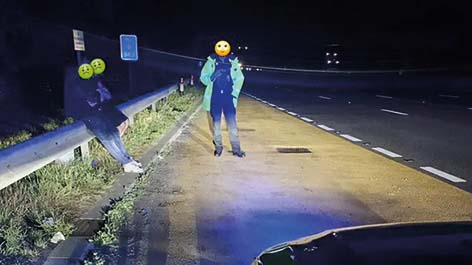
An Uber driver is under investigation by Thames Valley Police after allegedly abandoning two intoxicated passengers on the M4 motorway in the early hours of Sunday morning, June 1.
The incident, which reportedly occurred after the passengers became sick in the vehicle, has prompted a stern warning from authorities to all taxi drivers.
Thames Valley Police were called to a refuge bay near Reading around 1:40am after receiving reports of two pedestrians on the motorway. The force later confirmed via a Facebook post that the “intoxicated fare” had been “dumped” by their driver.
In a direct appeal to drivers, a police spokesperson stated: “Just a polite message to taxi (Uber!!) drivers - If your intoxicated fare ends up being sick in the back of your vehicle, after a Saturday night in town, please don’ t dump them on the side of the dark motorway!”
LBC reported that police have confirmed an investigation is underway, as “it is an offence to allow the public to put themselves in the position of being a pedestrian on the motorway.”
Thankfully, the abandoned passengers were not injured and were safely taken home by family members.
FAMILY ASTOUNDED AFTER NO ACTION TAKEN AGAINST UBER DRIVER FOR NOTTINGHAM ASSAULT
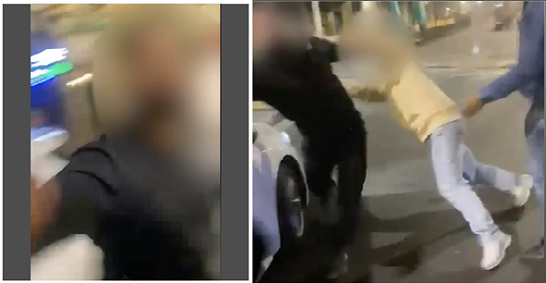
A Nottingham family has said it is “flabbergasted” after police decided to take no further action against an Uber driver accused of assaulting two sisters in March.
The incident, which was partially filmed, has left the family questioning the justice system.
The altercation unfolded on March 23, when two sisters, aged 20 and 28, hailed an Uber on Angel Row after a night out. The situation quickly escalated when the 28-year-old felt unwell, prompting her sister to suggest opening a window.
According to the sisters, the driver allegedly responded by saying: “If you’re going to get sick, get out of my car,” before reportedly verbally abusing them.
One of the sisters began filming as they exited the vehicle, closing the doors “harshly.” The driver is then seen allegedly leaving his car and punching the woman filming, as well as a man from a group who intervened to help the women. It is claimed both women were punched by the driver.
Despite a call made to police, no officers were dispatched “due to demand elsewhere” and the driver having left the scene. Two months later, the sisters were informed that the case was being closed.
An email from Nottinghamshire Police to one of the sisters, seen by Nottinghamshire Live, stated: “Having interviewed the taxi driver, it has been decided there is not enough reliable evidence to progress this job. Both the provided statements undermine each other as to the events that happened and the initial call from yourself differs to your statement.”
Cllr Sarita-Marie Rehman-Wall, the women's mother and a Labour Councillor, expressed her dismay, stating: “We are absolutely flabbergasted. You can’t look at that video and not be absolutely astounded. They didn’t take into consideration how traumatised they were and how that could affect their statements.”
She added that her daughter “said she’s lost faith in humanity and can’t trust men. It’s disgraceful, shame on Notts Police. We will keep pushing for a complaint.”
While the police have closed their investigation, Wolverhampton council, which licensed the driver, confirmed his licence has been revoked with immediate effect since the incident.
IN THE NEWS
WOLVERHAMPTON FIRST TO USE CONTACTLESS TECH FOR TAXI/PH DRIVER LICENCE CHECKS
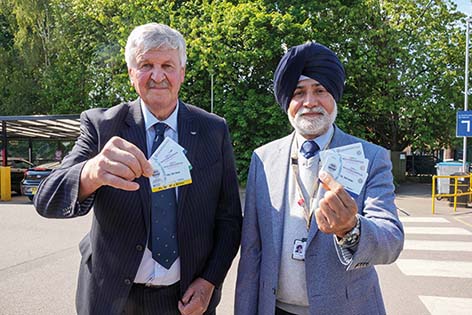
City of Wolverhampton Council is providing increased security for taxi and private hire passengers by becoming the first authority to offer driver licence checks by smartphone.
Contactless technology has been introduced into driver’s ID cards, meaning passengers can view a digital version of their driver’s private hire or taxi driver licence simply by tapping the card with a Near Field Communication (NFC) enabled smartphone.
This will provide reassurance about the driver’s identity and confirm to passengers whether their private hire or taxi licence is current and valid.
Details of all taxi and private hire driver licences are held on the council’s driver database. The database is checked and revised every day, meaning information sent to the passenger will be accurate and up to date.
Existing identity cards, used by taxi and private hire drivers across the country, are susceptible to being copied and used fraudulently which can pose a risk to passengers.
But the new contactless ID cards, which will be used by the council’s licensed private hire and hackney drivers, contain a range of security features which make them extremely difficult to fake.
These features include a hologram, optically variable inks and guilloche patterns, similar to those seen on banknotes and passports, as well as a number of other forensic features.
Most importantly, the technology they contain will enable passengers, police and other councils to verify the identity of the driver as well as their licence status.
Many modern smartphones support NFC technology. It is most commonly used in contactless payments, to make secure transactions, exchange digital content, and to connect electronic devices. But this is believed to be the first time the contactless technology is being used to digitally verify a driver’s licence status.
The new contactless ID cards have already been issued to around 15,000 drivers licensed by the council and have been tapped more than 40,000 times. Those renewing their licences over the next three years will receive their new ID cards in the post.
Passengers are encouraged to tap their driver’s ID card, positioned in the front windscreen on the passenger’s side of the vehicle. The card can be tapped through the glass, before customers get in.
Instant results will be available on the passenger’s smartphone. If the licence status shows as invalid, they are advised not to get in the vehicle and report the driver to the council.
If passengers are unable to use the NFC function, they can check the driver against the council’s online registers at: wolverhampton.gov.uk/DriverRegister
The cards have been developed in partnership with UK-based firm Euclid, which specialises in contactless cards and ID cards. The company works with governments around the world on national identity and passport schemes.
Councillor Bhupinder Gakhal, cabinet member for resident services at City of Wolverhampton Council, said: “Once again, Wolverhampton is leading the way by using cutting edge technology in taxi and private hire licensing.
“We have worked with our supplier, Euclid, to create cards that use ingenious technology to improve the public’s trust in their drivers. This technology makes checking your driver’s licence and identity far simpler than calling the council and the security features in the card also make it much harder for potential fraudsters.
“Not only do the new cards offer extra reassurance, they are also more environmentally-friendly and prevent the need for tens of thousands of plastic licences to be printed every year.”
IN THE NEWS
WARNING ABOUT COURIER FRAUD SCAM AFTER WINCHESTER UBER DRIVER RAISES ALARM
Hampshire Police is urging people to be vigilant after an Uber driver raised the alarm over a suspected courier fraud scam.
The driver called police at 6.30pm on 11 June. He reported that earlier that day, he had accepted a ride request to transport documents from an address in Winchester to one in London. After the driver had collected two parcels from a woman at the Winchester address, the customer changed the drop off location to a car park in Watford.
When the driver arrived, a man with his face partially covered, approached the vehicle, and gave a name that was not associated with the booking. The taxi driver became suspicious, refused to hand over the packages, and said he would report it to the authorities, so the man ran off.
The driver returned to Hampshire and called the police. The packages, contained £6,000 cash and bank cards. Following enquiries, officers spoke to the victim, a woman in her 70s. She said at midday she had received a call from a man purporting to be a police officer investigating fraud at a bank.
He said her card had been cloned and persuaded her to take part in a covert operation by withdrawing £6,000 from her bank. She was directed to give a false explanation for the cash withdrawal, to avoid alerting bank staff, then told to put the cash and her bank cards in two packages and hand it to an ‘evidence collector’.
She later became suspicious of the call and contacted her banks to freeze her accounts.
The police force has seen a notable increase in reports of this type of fraud in the force area in June.
DC Mike Dumbleton said: “The driver did the right thing - he trusted his instincts that something wasn’t right, reported it to us, so the victim has not lost £6,000.
“We would encourage all private hire drivers to be aware of this scam, in case they get requests to transport packages in this way. Please be suspicious, especially if the person you collect the package from is elderly or vulnerable in any way.
If you think it is a scam, please report it to us by calling 101. If a crime is in progress, dial 999.”
SHEFFIELD TAXI DRIVERS HAIL VICTORY AS EMR DROPS PERMIT CUTS AMID GRIDLOCK ROW
Sheffield’s taxi drivers are celebrating a significant win after East Midlands Railway (EMR) U-turned on controversial plans to drastically cut the number of permits at Sheffield station and dramatically increase fees.
The decision marks a victory for cabbies who had been vocal in their opposition, even resorting to a payment strike last year.
EMR had initially proposed slashing the number of taxi permits from 250 to 177 and hiking the annual fee by 62%, from £700 to £1,140. These proposals were part of EMR’s efforts, unveiled in March, to alleviate persistent “gridlock” and “traffic chaos” at the busy station.
The long-running dispute saw black cab drivers initiating a payment strike in October, refusing to renew their permits until EMR addressed what they described as a “chaotic traffic environment.”
Hafeas Rehman, chairperson of the Sheffield Taxi Trade Association, confirmed the cessation of the strike and the payment of arrears following EMR’s reversal. “We’ re pleased. Hackney cabs are not the cause of congestion at the station,” Rehman stated, expressing the sentiment of the taxi community.
While the permit cuts are off the table, EMR is still considering other proposals aimed at improving traffic flow.
These include potentially closing the public drop-off point and making it private hire only, converting the public short-stay car park for “blue badge and contractor” use only, and designating the area directly in front of the station for black cabs only. The future of the rail staff car park on Turner Street is also under review, alongside broader improvements to traffic management.
An EMR spokesperson confirmed ongoing discussions, stating: “We are currently working through a revised scheme with the council and taxi driver representatives.
“More information will be shared once timescales are finalised.”
NORTH AYRSHIRE GRANTS NON-WHEELCHAIR ACCESSIBLE TAXI LICENCE DESPITE POLICY
A taxi driver in North Ayrshire has successfully secured a licence for a non-WAV, which goes against the established policy of the North Ayrshire Licensing Board.
Mary Hewitt was granted the new taxi licence during a Licensing Board meeting on June 11, after arguing her case for an exception to the rule. Licensing chair Eleanor Collier pressed the applicant, stating: “You have to convince us you are entitled to an exception as this is against our policy.”
Hewitt, who has been driving a taxi for 28 years, explained her clientele’s specific needs, stating: “The car I was driving before was a normal saloon car, my husband’s name was on the licence but I had been driving it for 28 years and anybody I pick up is really elderly. It’s like care in the community as well as being a taxi driver.”
She further elaborated on her passengers’ mobility challenges: “The people I ferry are not able-bodied, their mobility is not great and they’re unable to get into a car that’s higher than a saloon car.”
Cllr Collier acknowledged the broader push towards accessible transport, saying: “The direction of travel in terms of taxis is for WAVs. It is law and we should be doing everything we can to encourage them. We have heard before about the access issues.”
However, Hewitt countered this by stating: “I previously had a WAV and only had a request twice for a wheelchair. The requests are very minimal.”
Following the discussion, Cllr Matthew McLean proposed granting the licence, a motion which was subsequently passed unanimously by the committee.
DENBIGHSHIRE COUNCIL FACES LEGAL RISK AFTER RELAXING TAXI AGE RULES FOR WAVs
Denbighshire Council’s licensing committee has voted to relax age restrictions on WAV taxis, a move aimed at boosting availability for school transport, despite warnings of potential legal challenges from taxi companies serving able-bodied passengers.
The decision, made at a committee meeting on June 3, followed a consultation with c. 300 HC drivers and PHV licence holders.
Previously, all taxis over 12 years old were removed from service. Under the new temporary rules, effective until June 2026, WAVs will now be required to meet “Euro 6 emissions standards” and undergo three compliance checks annually once they reach 12 years of age. A review will then assess the impact on WAV availability and consider making the change permanent.
Cllr Alan James, who proposed the relaxation, believes it will have broader benefits. “I think this is a good proposition,” he stated. “It will enable more disabled people to get out and about in the normal public arena, so it isn’t just about Denbighshire’s view of the expense of school transport.”
He added: “Let’s see how it works in a year’s time. We’ll come back, evaluate any information we’ve got, and make some decisions.”
However, the decision was not without concerns. Cllr Gwyneth Ellis raised a pertinent legal question: “I’d be interested in a legal opinion that if we change the requirements for these cars, could that open up a possibility that other operators will be able to say: ’Hang on, if those cars are safe enough for disabled people, then surely they are safe enough if people don’t have a wheelchair?’”
The council’s legal advisor, Nash-wan Fazlani, acknowledged the inherent risks in any decision. “Invariably, whatever the decision the local authority is going to make, there’s always going to be a legal risk. So, it’s impossible to mitigate a legal risk with any decisions to zero,” he explained.
He added: “We have a public-sector equality duty, so users of wheelchair might say that we discriminated against them because we are making their life more difficult in terms of access to taxis and other forms of transport for them to get around. So we are probably in a situation where you have to decide what’s the least worst option in terms of legal risk.”
Despite the legal warnings, Cllr Ellie Chard seconded Cllr James’s proposal, and the vote to relax the rules was unanimous.
SHAME SHAME
BURNLEY CABBIE JAILED FOR FABRICATING EVIDENCE TO EVADE SPEEDING PENALTIES

A Burnley cabbie has been sentenced to 12 months in jail after admitting to perverting the course of justice by falsifying documents to avoid penalties for speeding offences.
Sajid Hussain, who committed two speeding violations in the Burnley area on December 17 and 19, 2022, while working as a taxi driver, paid £600 to have false details and fake insurance documents created.
These documents named a non-existent individual as the driver in an attempt to avoid accumulating points on his licence, which would have impacted his livelihood.
Hussain recently pleaded guilty at Preston Crown Court.
Sergeant Chris Birchall of the Safer Roads Unit commented on the case: "Hussain thought he could get away with perverting the course of justice and avoid getting points on his licence.
“He is now spending 12 months in jail when he could have just taken a driving awareness course, points and a fine.”
Sgt. Birchall also issued a stern warning to others considering similar actions: “I want to use this opportunity to remind anyone, who may consider lying on a document to avoid prosecution that this is illegal and the consequences of this are far more severe.
"This won’t ‘just’ result in points on your licence, or a fine, you will be criminally prosecuted, and could be sent to prison."
FAKE UBER DRIVER CONVICTED AGAIN FOR BRIGHTON SEX ASSAULTS ON VULNERABLE WOMEN

A man who posed as an “unofficial Uber” driver to target “vulnerable and intoxicated” women has been found guilty for a second time of sex assaults in Brighton.
Graham Head, 68, was reconvicted on 19 June, by a jury at Lewes Crown Court following an eight-hour deliberation.
Head, of Pevensey, was initially handed a 23-year sentence in July 2023 for the kidnap and attempted rape of a 25-year-old woman, and the assault by penetration of a 19-year-old woman. However, his conviction was overturned in November 2024 by the Court of Appeal due to a complaint about the original trial judge.
During the retrial, jurors heard that Head was a “sexual predator” who operated from his silver Mercedes estate, equipped with chilling contents including latex gloves, condoms, Viagra, and a balaclava, found at the time of his arrest in Nov-ember 2022. Business cards advertising him as a “N-Uber driver” with the slogan “Safe and Reliable - For All Occasions” were also found at his home.
Prosecutor Paul Jarvis KC described Head’s modus operandi: “Basing himself in Pevenney and ostensibly working as an unofficial Uber driver or taxi driver. He was also looking for vulnerable young women who he could sexually abuse.” The court was told that Head was “savvy enough” to keep his two mobile phones in flight mode while searching for victims to avoid network providers recording his movements.
The two attacks are said to have occurred in the early hours of August 19, 2022, in Hove Park, and November 18, 2022, outside one of the alleged victim’s homes.
The 25-year-old victim, who has since died and did not give evidence at the trial, managed to remember the “L21” portion of Head’s number plate, which led to his arrest.
As Mr. Jarvis stated: “He slipped up on November 19 2022 because his victim was alert enough to be able to memorise part of the licence plate for the police to be able to identify his car when they saw it.”
Head had claimed he offered the 25-year-old a lift home but didn’t touch her and denied ever meeting his other alleged victim.
He will be sentenced on 22 August.
BUSINESS NEWS
MANCHESTER’S MANTAX CABS REBRAND AS COMCAB MANCHESTER JOINING NATIONAL NETWORK
On 5 June, Mantax, Manchester’s leading premium black cab service, unveiled its rebrand to ComCab Manchester, joining the wider ComCab network.
The largest hackney fleet in Man-chester, will continue to provide a safe and reliable service across the city, provided by drivers with unrivalled regional knowledge.
As part of the rebranding, customers can now enjoy app and web booking services, enabling them to book both in advance and on-demand, with real-time tracking for live updates on taxi availability and location.
On the road, taxis will feature distinctive ComCab signage, ensuring passenger confidence that they are getting into the correct, trusted, authorised taxi.
Karen Long, Northwest Regional General Manager, said: “This rebrand and integration into the wider ComCab network marks a significant milestone in our commitment to delivering a safe, seamless, and trusted service both locally and nationally.
“Benefitting from enhanced booking options, real-time tracking, and increased connectivity between Manchester and Liverpool, this change reflects our vision for a modern, integrated transport solution to meet the evolving needs of the communities we serve.”
ComCab Manchester is part of CityFleet Networks Limited, one of the UK’s largest land transport providers and subsidiary of ComfortDelGro, a Singapore headquartered multi-modal land transport leader.
FREENOW EXPRESSES CONCERNS OVER LACK OF DETAIL IN TfL’S PLAN TO SUPPORT TAXI TRADE
FREENOW has expressed concerns about the lack of detail in Transport for London's (TfL) new Taxi and Private Hire Action Plan, particularly regarding how it will address the declining number of taxi drivers. The taxi app believes the plan lacks a clear strategy for reversing the decline and calls for more specific measures to support the taxi trade.
FREENOW, along with other industry stakeholders, feels that while the plan acknowledges the problem, it doesn’t offer concrete steps to attract and retain drivers.
Following a London Assembly Transport Committee meeting with TfL, Danny O’Gorman, FREENOW UK General Manager said: “Yesterday’s meeting was another missed opportunity to provide the clarity and leadership the taxi trade urgently needs. The Action Plan, as it stands, lacks a clear vision for the future of the black cab trade in London.
"Without timelines, tangible targets or clear funding commitments, it remains unclear as to how TfL intends to reverse the decline in taxi licences - which have plummeted to well below 15,000 in the last year, while ensuring the profession remains an attractive and viable career.
"Drivers need greater support in making the switch to greener vehicles, particularly as public subsidies come to an end and vehicle costs continue to rise - since 2017, the cost of purchasing a new electric cab has surged by 39% in cash terms.
“We believe the Green Finance Fund has real potential to help more taxi drivers go electric, and we have been actively campaigning hard for this support in recent months. It’s disappoint-ing that this wasn’t addressed as part of a joined-up approach to support the trade’s future.
“Black cabs have a vital role to play as part of a sustainable and accessible transport network within the capital. To safeguard its future, the trade now needs clear, practical support and policy action to match its ambitions.
“At the same time, the now approved plan to ban taxis from Oxford Street undermines the role of black cabs as one of the most accessible transport options in the capital. A blanket ban will disproportionately impact disabled passengers, older citizens and visitors who rely on door-to-door travel while also impacting drivers’ earnings.
“We urge City Hall and TfL to work with the trade on solutions that balance pedestrian access with inclusive transport.”
FREENOW APP LAUNCHES IN COVENTRY - A QUICK AND EASY WAY TO BOOK A TAXI
FREENOW has announced the launch of its app in Coventry. In partnership with Lewis Taxis, a local company that has been serving the area for over 50 years, FREENOW is now offering a quick and easy way for locals and visitors to book licensed taxis in the city.
Available in over 150 cities in Europe, the FREENOW app is already the go-to taxi app in major cities such as London, Dublin, Edinburgh, Berlin, Athens or Madrid. FREENOW recently started to offer its service in Glasgow, and the company continues to expand across the UK, bringing its innovative features and seamless experience to even more users.
With Coventry now on the map, passengers can enjoy quick and convenient access to safe, reliable rides in just a few taps.
The FREENOW app allows users to:
- • View the upfront fare before confirming the trip
- • Track the driver’s arrival in real-time
- • Use the ‘Prebook’ feature to schedule a ride from 20 minutes up to 90 days in advance
- • Pay securely via Apple Pay, Google Pay, PayPal, card, or cash
Every booking provides users with information about their driver and vehicle, and passengers can use the ‘share my trip’ feature to let friends/family follow their journey.
Mohammed Wasim, Area Manager at Lewis taxis, said: “We’re delighted to partner with FREENOW. This partnership will help drivers in Coventry increase earnings while giving passengers a convenient way to book their taxis, providing better transport services in the city.”
Danny O’Gorman, FREENOW UK General Manager, added: “Expand-ing into Coventry is an exciting step for us. We’re proud to be growing our footprint across the UK and confident our platform will make a real difference for drivers and passengers in Coventry.
“Providing exceptional customer service and supporting our drivers has always been a top priority for us. That’s why partnering with Lewis Taxis was a natural fit. Their strong reputation and deep-rooted trust within the Coventry community made the decision an easy one.”
WHATSAPP TAXI BOOKINGS
EMPOWERING SMALL TRANSPORT BUSINESSES WITH AI AND WHATSAPP AUTOMATION
by M2M TaxiBot www.m2mtaxibot.com
In a fast-moving world, small transport businesses face growing pressure to deliver a professional, reliable service while keeping operations lean. Many of these businesses operate without dedicated taxi dispatch software, relying instead on manual bookings and phone calls. But there’s a smarter way forward.
By combining AI and WhatsApp automation, these businesses can now increase bookings, boost revenue, and streamline operations - all without the need for complex or expensive systems.
Why AI chatbots are a game changer
WhatsApp TaxiBot Lite is a game changer for the transport sector by offering 24/7 bookings, real-time customer interaction, and automated workflows - all through a platform your customers are already using: WhatsApp. With over 2 billion users globally, WhatsApp is the go-to messaging app for instant communication, making it the perfect channel for taxi and transport bookings.
Taxi fleets without a dispatch system
For small taxi fleets operating without formal dispatch software, TaxiBot Lite is a lifeline. It automates the booking journey via WhatsApp, removing the need for handwritten logs, disjointed group chats, and juggling calls while on the road. Instead of hiring a dispatcher or missing out on peak-hour jobs, your AI assistant takes the bookings for you.
Benefits include:
- • Automated booking capture and confirmation
- • Instant calendar integration for driver scheduling
- • Reduced admin and missed job opportunities
- • Professional customer contact with no extra staff cost
Airport transfer firms: never miss an early flight
Airport transfer companies deal with tight deadlines, pre-booked rides, and early morning or late-night requests. TaxiBot Lite ensures that you never miss a booking.
Key advantages:
- • 24/7 customer interaction, even while you sleep!
- • Elimination of response delays
- • Easy repeat bookings for regular airport runs
- • Customisable to suit pricing models or flat-rate zones
Minibus operators: easily manage group bookings
Minibus bookings often involve group travel, events, and school runs — all requiring more coordination than a standard taxi fare. TaxiBot Lite can handle the back-and-forth for you. From collecting passenger numbers to detailing pick-up times and locations, the chatbot makes sure all the information is gathered accurately and effortlessly. It reduces booking errors, prevents overbooking and keeps your schedule organised.
Benefits include:
- • Efficient group booking management
- • Customised conversation flows for multi-stop journeys
- • Real-time updates and rescheduling options
- • Less time on the phone, more time on the road
Chauffeur firms: offer premium booking experience
Chauffeur clients expect a higher standard of service - and that begins at the point of booking. WhatsApp TaxiBot Lite provides a seamless, luxury feel right from the first message. Clients can book by simply messaging your business line, receive personalised confirmations, and feel assured they’re in professional hands.
With AI doing the heavy lifting, your brand projects sophistication without needing a back-office team.
Highlights:
- • Bespoke messaging to match your premium brand
- • Professional, polished communication 24/7
- • Easy integration of booking terms, pricing and extras
- • Impress clients while saving time
Grow your business with Taxibot lite — the smart, scalable way
Whether you’re a solo driver or manage a small team, WhatsApp TaxiBot Lite fits your business. No tech headaches. No high costs. Just an intelligent assistant keeping your calendar full and your customers happy.
In today’s competitive market, booking automation isn’t just a nice-to-have - it’s a business advantage. By leveraging the familiarity of WhatsApp and the power of AI, small transport operators can punch well above their weight and never miss a booking again.
Book a demo at www.m2mtaxibot.com
ROUND THE COUNCILS
BRISTOL: PH KNOWLEDGE TEST MAY BE AXED
The knowledge test for Bristol private hire drivers may be axed. First introduced in 1865, the 90-minute Knowledge test requires drivers to learn thousands of routes across the city but a report states that just eight of 133 people who took the test this year passed.
Licensing officers are now suggesting scrapping this part of the entry exam.
A report to the committee on June 3, said: “Concerns have been raised that sections of the test are no longer relevant. All private hire journeys are pre-booked, and the vast majority of drivers rely on satellite navigation devices. As such the current requirement to know the location of certain premises or roads is outdated.
“The level of detailed local knowledge required to pass the test is significant and represents a significant barrier to entering the trade.
“No change is proposed to the format of the hackney carriage knowledge test in light of the fact that they are available for public hire and as such will not always know the destination in advance of the journey.”
The committee report said DfT guidance was updated in November 2023 to say: “Given the availability, reliability and ease of use of sat nav systems, licensing authorities should not require any topographical knowledge or navigational tests for PHV drivers.”
The report said: “In light of the DfT guidance and the significant advancements of satellite navigation technology since the test was first introduced, officers recommend that the topographical knowledge sections are removed from the test.”
It said the sections remaining in the test would be relating to safety, including CSE, general road safety and how to calculate change, policy and legislation, and equality. The report said these should be strengthened with a wider range of questions which protect public safety, such as disability awareness, planning routes using navigation devices, conflict avoidance, and what to do if racially abused or being subjected to other abusive comments or hate speech.
It said these areas were supported by the new DfT guidance. The report added: “Officers consider that the amendments to the private hire knowledge test would make the test more relevant to the trade. It would ensure applicants had a good understanding of their role and responsibilities as a licensed PH driver and therefore ensure the safety of the travelling public.”
PENDLE: “OBSOLETE” KNOWLEDGE TEST AXED
Pendle Council has opted to remove the local knowledge test from its assessment for new taxi and private hire drivers, citing government guidance that deems such tests “obsolete” due to the prevalence of satellite navigation technology and pre-booked journeys.
The decision was made at a taxi licensing meeting in May, scrapping the £29.90 test component for hackney carriage and private hire licence applicants.
A spokeswoman for Pendle Council confirmed the move, stating: “Government guidance says that due to sat nav technology and with journeys being pre-booked the need for a local spatial test is now obsolete. We are therefore complying with national guidance.”
However, not all councils in Lancashire are following suit. Neighbouring authorities such as Blackburn with Darwen Borough Council and Rossendale Council still retain a local knowledge element in their taxi driver assessments.
Blackburn with Darwen’s £87 test, for instance, requires applicants to identify the roads of ten local landmarks, including pubs, schools, and medical centres. Rossendale’s £70 example test includes questions on local pubs and landmarks, as well as general knowledge queries.
Some drivers argue that local knowledge extends beyond simply knowing street names. Mo, a private hire driver working in Blackburn, emphasised the practical advantages.
“Sat navs are great, obviously, but someone who has a lot of knowledge about their local area will know where roadworks are located, or which roads are quieter at certain times,” he said.
He also highlighted the convenience for passengers if they change their destination mid-journey, noting that drivers reliant solely on sat navs would “have to stop and re-route their journey whereas those who know the town they work in will have no problem.”
While Lancaster City Council’s assessment, costing £87, does not appear to include a local knowledge test, they do offer free training courses through a local college. Applicants for taxi licences must cover the cost of both the test (where applicable) and the application itself.
Three-year licence fees vary significantly across councils, from £354 in Lancaster to £238 in Blackburn with Darwen and £259 in Rossendale.
EAST RENFREWSHIRE: VEHICLE AGE LIMITS REMOVED
East Renfrewshire Council has voted to remove vehicle age limits for all private hire cars and taxis operating within the council area as local trade representatives declared victory following a two-year campaign to have the age limits scrapped.
At a meeting of the council’s licensing committee, members voted in favour of removing the long-standing policy that restricted vehicles from being licensed beyond ten years. In addition, the committee also voted to remove a requirement for a car to be less than five years old to be granted its first licence.
The changes take immediate effect.
The decision follows sustained pressure from the East Renfrewshire branch of the Scottish Private Hire Association (SPHA), the Scottish Taxi Federation as well as members of the East Renfrewshire Hire Car Forum.
Campaigners argued that the age limit was outdated, costly for drivers and unnecessary if vehicles were otherwise roadworthy.
John Paul Duffy, Convenor of the East Renfrewshire branch of the SPHA welcomed the move, saying: “We are very pleased that the committee agreed to remove vehicle age limits today. It has been our branch's position that if a vehicle is deemed fit to pass the council’s compliance test and an MOT then there is absolutely no reason why it should be prevented from operating just because it has reached an arbitrary age limit.
“This was being campaigned for by several different trade stakeholders and we’re pleased the council has agreed with our position and voted in favour of this change”
The campaigners highlighted the ongoing cost of living crisis as a key reason to reform the licensing rules. Removing age restrictions will allow drivers to purchase more affordable, lower-mileage vehicles and to continue operating cars that are still in excellent condition despite their age, provided they pass the council’s rigorous compliance as well as MOT checks.
James Kyle, East Renfrewshire branch Chairman of the Scottish Taxi Federation, said the move would provide crucial support for operators.
“It’s no secret that the trade has been struggling to recover from the pandemic, and now the cost of living crisis is biting hard. This will give vehicle operators a bit of breathing space and hopefully will allow the trade to overcome some of the economic challenges.”
East Renfrewshire’s taxi and private hire compliance test is regarded as one of the most stringent in Scotland’s 32 licensing authorities, ensuring vehicle safety and standards remain high despite the removal of age limits.
The policy change means that, effective immediately, vehicle operators can apply to license cars of any age, as long as they meet the compliance and safety requirements.
MIDLOTHIAN: APOLOGY FOR 3-YEAR FARE REVIEW DELAY
Taxi operators in Midlothian have finally received an apology from council officers after a critical fare review was delayed by over a year, leaving them grappling with escalating operational costs.
The delay means it's been nearly three years since the last fare increase, despite a policy dictating reviews every 18 months.
During a Midlothian Council’s General Purpose committee meeting on June 17, industry representatives highlighted the severe impact of the delay, calling for fare increases of up to 20% to offset rising expenses.
The Midlothian Taxi Owner’s Association (MTOA) has urged the council to align its fares with those in Edinburgh to help meet these burgeoning costs.
Proposed changes include an increase in initial daytime hire charges from £3 to £3.50, evening charges from £3.80 to £4.50, and festive holiday rates from £4.50 to £5.
Additionally, the MTOA proposes a 20% increase in time and distance charges, from 25p to 30p, across all tariffs.
Councillors pressed officers for an explanation regarding the prolonged delay. Derek Oliver, the council’s head of place, attributed the hold-up to “changes in licensing and we have had a number of work themes to go through.”
He added: “We can only apologise that is has taken this long to get to where we are now.”
The proposed changes will now undergo a public consultation, with results expected in at least a month. However, councillors acknowledged that even with a swift approval, it would still mean nearly a three-year gap between fare increases, a significant burden for local taxi operators.
ROUND THE COUNCILS
EAST AYRSHIRE: KNOWLEDGE AND WAV REVIEW
A local taxi operator has issued a warning that red tape imposed by East Ayrshire Council is deterring new drivers and jeopardising services such as school runs, night-time safety, and the future of WAVs.
Ross Gilmour, boss of Thistle Cabs, made a strongly worded submission to the council’s licensing panel, alleging a dramatic drop in new applications, attributing the decline to a compulsory street-knowledge test and stricter medical checks.
He also criticised the council’s decision to limit attempts at the £30 test, calling it something that “beggars belief” given modern navigation technology.
While Gilmour claimed a “particularly low” pass rate for the knowledge test, council officials have refuted this, reporting 64 successful applications out of 83 since its reintroduction in early 2024.
Gilmour was equally critical of mandatory medical assessments, particularly as “neighbouring authorities had not taken the same route,” creating a “postcode lottery” for drivers. He also highlighted “a minimum 28-day wait” for successful applicants to receive their licences, a delay he found “astounding.”
Further compounding frustrations is the temporary relocation of Kilmarnock’s main taxi rank, which Gilmour says has led to a “cut in a vital revenue stream for drivers already struggling with spiralling costs.”
The financial strain of maintaining WAVs, with new models costing around £60,000, is becoming “impossible for many.”
Gilmour concluded: “A lack of drivers means lack of income, means a lack of investment, which leads to lack of quality.” He urged councillors to scrap the route test, drop the medical requirement and restore the taxi rank to its original location.
The council’s Licensing Panel met on June 19, where it was agreed:
- • to retain the current policy of requiring 25% of the taxi fleet to be WAVs and that the policy be subject to further review in 18 months’ time
- • to undertake a review of the policy requiring applicants for taxi and private hire driver licences to undergo a topographical knowledge test
- • undertake a review of the policy requiring all taxi and private hire drivers to be medically assessed to DVLA Group 2 standards.
- • that the review should consist of a survey questionnaire to all taxi and private hire car operators.
EAST DEVON: RESPONSE RATE STALLS FARE OVERHAUL
Plans to introduce a more precise method for calculating maximum taxi fares in East Devon have been stalled due to a dismal response rate from local hackney carriage drivers.
Only six out of 135 licensed drivers participated in a district council survey designed to gather crucial data for future fare adjustments. This poor engagement means the council will revert to its existing, less accurate methodology for setting potential 2025 maximum fare levels, relying on inflation and comparisons with other councils.
The council had hoped to adopt the “Guildford method,” a data-driven approach designed to ensure fare changes more accurately reflect the realities faced by taxi drivers. However, without sufficient input from the trade, this move has been put on hold.
“It’s slightly ironic because over time we have been trying to make our methodology as accurate, useful and helpful for the trade as possible, but the trade hasn’t responded,” commented Cllr Joe Whibley, chair of the council’s licensing and enforcement committee.
“So, what we’re [essentially] doing is making it even simpler than before and less accurate and less meeting the needs of drivers, but that’s where we are.”
Anecdotal evidence suggests some drivers felt last year's 10 per cent fare increase was sufficient, despite the East Devon Taxi Association having sought a 15 per cent rise.
Other concerns included potential misuse of the data - though the council stressed it would only be for fare setting - and the costs and time associated with recalibrating meters for new maximum fares.
East Devon's taxi fares already rank 32nd out of 341 local authorities. The current two-mile fare on tariff one in East Devon stands at £8.69, significantly higher than the national average of £7.30.
Cllr Olly Davey underscored the importance of reliable information, stating: “With accurate data it should come out with a really good formula, but I don't think we should do it with poor quality data.”
Despite the setback, the council has vowed a "concerted effort" to gather more data from drivers over the next year, with the aim of reconsidering the Guildford method for future fare reviews.
Proposed maximum fares and charges for 2025 will be brought back to the committee later this year and will be subject to a 14-day public consultation.
NORTH NORTHANTS: DE-ZONING PLANS SPARK OUTCRY
North Northamptonshire Council (NNC) has given the green light to controversial new licensing laws for taxi drivers, a move that many cabbies warn could force them out of business.
The changes, approved by the new Reform executive panel on June 17, aim to unify the region’s disparate taxi zones into one harmonised system and are set to take effect from September.
The proposed regulations, which still require full council approval, have been met with fierce opposition from the taxi trade. A late 2023 survey by NNC on the de-zoning plans revealed that 65% of respondents either disagreed or strongly disagreed with the proposals.
Henry Liffen, a Wellingborough taxi driver of 37 years, expressed his dismay at the meeting, stating he would be forced to leave the profession. He called for a “proper consultation” where the trade’s concerns are genuinely heard. “It seemed that the remit of the previous licensing committee was to get harmonisation through, whatever the consequences,” he said.
“If this new rule is passed then with a heavy heart and sadness, I would hand my taxi licence back and thank the council for taking my business away from me.”
Another Wellingborough driver, Ricky Dunkley, with two decades in the trade, raised significant concerns about the policy’s requirement for all drivers to switch to WAVs by 2028, despite what he claims is no increased demand for such vehicles in the area.
“My current taxi at the time I bought it cost me £8,000. I would like to typically spend a similar amount on my next upgrade,” Dunkley explained. “Under the current policies that are coming in, I would be expected to spend at least £65,000 for a low basic car. If this goes through, I will have no other choice but either to close my business or to move it to another council and work off cross-border laws.
“I plead that you revert these policies back to the 2023 policies and run a fresh consultation with the trade and listen to us.” Other major points of contention include a new “knowledge test” covering the entire 382 square miles of North Northants, which is yet to be finalised.
Cllr David Brackenbury, former Conservative member who oversaw the process, acknowledged the complexity. “We’ve had to balance so many different interests both in terms of the taxi trade itself and good regulation and governance and the public,” he stated.
“Nothing as complex as this is going to please everybody at the same time, but the paper seeks to provide the best taxi service across North Northamptonshire.”
George Candler, NNC executive director of place and economy, addressed the cost of wheelchair-accessible vehicles, promising a further review of that specific area. He also defended the consultation process, stating: “The consultation has been undertaken directly with the trade and more widely with the public. It has had fairly significant scrutiny as well as engagement. The overriding objective for this policy is protecting the public.”
Cllr Kirk Harrison, executive member for Regulatory Services, emphasised that this is a “transitional policy, it’s not the final word.” Cllr Harrison reassured drivers that “nobody has to change their vehicle today, or in September, or at any time at least up until 2028,” as grandfather rights for existing vehicles would be protected.
The policy was unanimously approved by the executive members and will now go before the full council for final approval by the end of the month. NNC has indicated that any further delays to the updated byelaws could push back the proposed September implementation date.
A further review regarding the 100% wheelchair- accessible vehicle requirement, exceptional age policy, grandfather rights, and transitional arrangements is slated for before the end of 2025.
SHEFFIELD: PH OPERATOR SIGNAGE REMOVED
Sheffield City Council has removed private hire operator signage from private hire vehicles.
Craig Harper, Sheffield Council’s chief licensing officer clarified:
- • Private hire operator signage is no longer permitted
- • However, there may be limited occasions where they still need to be displayed, such as where the vehicle is being used for special educational needs and disability (SEND) through the Council contract - it’s a requirement.
- • Both the SCC door signage and the rear licence plate can be displayed using magnets
- • Therefore, when the vehicle isn’t being used for PH purposes, or is parked up, signage can be removed.
IN THE NEWS
TAXI BOSS SLAMS MISGUIDED BLAME IN GLASGOW NIGHTLIFE DECLINE ROW
Glasgow’s premier taxi operator has strongly refuted claims that a lack of available cabs is crippling the city’s night-time economy, instead pointing to wider issues and behavioural shifts as the real culprits.
The assertion comes as a city council consultation closes on whether to lift the current cap on taxi and private hire car licences, a move advocated by some business leaders and Uber.
Glasgow Chamber of Commerce, among others, has suggested that a shortage of taxis and private hire vehicles is deterring people from visiting the city centre during evenings and weekends.
The current cap stands at 1,420 for taxis (with 1,227 currently operating) and 3,450 for private hire cars, a limit that the latter market has reached. Uber has also weighed in, claiming “thousands of hires going unmet” and pushing for the cap to be lifted to increase its fleet and driver numbers.
However, Glasgow Taxis, the city’s established organisation, has vehemently rejected these arguments, warning that an increased supply of vehicles would only lead to existing drivers struggling to earn a living.
In its submission to the council, the company highlighted a Chamber of Commerce study itself, which identified overall safety, cleanliness, and the availability of alternative entertainment as key factors influencing city centre visits.
“In that survey, 80% of city centre visitors (and 82% of non-visitors) expressed a desire for improved late-night train service, and extended operating hours for trains and buses were the most cited improvement that would encourage more visits,” the taxi firm stated.
They further argued: “Taxis and private hire often fill the gap created by limited late-night public transport, rather than being the first-choice mode for most people leaving the city centre.”
Glasgow Taxis also pointed to broader societal changes impacting footfall. “The after-effects of the pandemic, coupled with the ongoing cost-of-living crisis, have changed many individuals’ habits,” they noted, citing an “emerging preference for different social patterns,” including earlier nights out and a growing trend of alcohol abstinence, especially among younger adults.
Addressing claims of insufficient taxi availability, a rank survey conducted by Glasgow Taxis at Gordon Street across four Saturdays in January and February found that even during peak times, “at no time was there an absence of taxis available at or near the rank.”
The report concluded that passenger waiting times were not due to a lack of taxis but rather issues with “the speed at which those taxis could be processed and loaded,” blaming poor traffic management, delays from cash-only payments, fare negotiations, and occasional driver misconduct.
The report definitively stated: “Adding more taxis beyond the numbers already in circulation would likely not have increased the number of trips provided in those hours, because the rank and road constraints were the governing factor.”
Instead of simply increasing numbers, Glasgow Taxis has recommended improvements to ranks, stricter enforcement of parking and traffic regulations, mandatory card payment options, and the inclusion of taxis in wider public transport enhancements. They also suggested considering “night shift only licences” to address specific peak demand concerns.
Dougie McPherson, chair of Glasgow Taxis, said. “We are not in step with some in the city on this issue,” he declared. “The struggles of the night time economy are affected by a lot of other factors, like working from home, behavioural changes, people staying in the local areas, city centre parking charges, yet the blame is being laid at the door of the taxi trade.”
McPherson dismissed lifting the cap as “the path of least resistance” and “unsustainable to cater only for peaks.” He specifically criticised Uber, stating they are the “only supplier in favour of removing the cap” and “fight against regulation wherever it exists,” while claiming their drivers struggle to make a living on the digital platform.
McPherson concluded by reiterating the core issue: “Late night trains and buses are poor and the underground goes off early. To lay this at the door of the taxis and private hires is misguided.
The decision now rests with the council’s Licensing and Regulatory Committee, which will determine whether to maintain or lift the cap on vehicle licences.
SOCIAL MEDIA SAVVY
WHY PHVs ARE PERFECTLY POSITIONED FOR AIRPORT TRANSFERS: HOW TO MARKET THAT ADVANTAGE
by Phil Holloway Hollogram Ltd www.hollogram.com
In the world of modern transport, it’s easy to assume that ride-hailing apps have taken over. With just a tap on a smartphone, a car can appear in minutes – it’s quick, easy, and suits the spontaneous journey.
But what happens when spontaneity isn’t an option? What if your 6am flight depends on reliable transport, or you’re landing back home exhausted at midnight with three suitcases and no desire to wait?
That’s where the traditional private hire industry shines – and it’s time we started shouting about it.
The power of pre-booking
Unlike the ride-hailing model, which relies on real-time availability, private hire companies are structured around pre-booked journeys. This is especially critical for airport transfers. When you pre-book a vehicle, you’re not hoping a driver will be available at 4am – you know that one will be there. Your driver will arrive at your door at the agreed time, in the correctly sized vehicle for your luggage and your passengers, ready to get you to the airport without stress.
On your return, many private hire companies offer flight tracking, so your driver knows if you’re delayed and adjusts accordingly. They’ll meet you in arrivals or in a designated pick-up area. This level of planning and personal service is a world away from hitting “Book Now” in an app and hoping for the best – especially when you’re jet-lagged or in a rush.
The marketing opportunity
The challenge is that many customers aren’t aware of these advantages. Ride-hailing apps have bigger marketing budgets and flashy digital platforms. But private hire firms have something more important: trust, experience, and local presence.
So how do you make sure customers understand the value of what you offer?
1. Use social media to educate
Regular posts on Facebook, Instagram and even TikTok can highlight your airport service. Show real-life stories – drivers picking up families for holidays, late-night returns made easier, or testimonials from loyal customers.
Explain how pre-booking works, and why it’s reliable.
2. Targeted local advertising
Airport transfers are big-ticket bookings – they’re worth advertising. Use billboards, bus stop ads, or posters in local gyms, shops and travel agents.
Focus the message: “Pre-book your airport taxi. No stress. No surge pricing. Just reliability.”
3. Flyers, cards, and partnering
Business cards and flyers left in hotels, travel agents, and local businesses can go a long way. Make sure your number and website are easy to find.
You could even offer a small discount or referral scheme to partners who recommend your service.
4. Don’t hide the booking system
If you offer online booking or an app, shout about it. If not, make your phone number and WhatsApp line front and centre. Booking should be as easy as possible – especially for return journeys when customers may be abroad.
The private hire industry is built on reliability and professionalism. For airport transfers, that’s exactly what customers need. Now’s the time to focus your marketing on that message – and make sure everyone in your local area knows you’re the best way to start (and end) their trip.
TERROR TIMES
SHOCKING VIOLENT AND UNPROVOKED ATTACK ON PH DRIVER IN OLDHAM
An Uber driver was the victim of a violent and unprovoked assault by two male passengers during a journey in Derker, Oldham.
One passenger attempted to strangle the driver, while the other repeatedly punched him. This was all taking place whilst the vehicle was in motion, putting both the driver and the public at serious risk.
Thanks to the swift response from a member of the Oldham Private Hire Drivers Association (OPHDA), the injured driver was promptly taken to Accident & Emergency for medical attention and thankfully we have been told the driver is OK.
Oldham PH drivers association told PHTM: “We strongly condemn this attack and urge all drivers to remain vigilant.
“If you experience or witness any similar incidents, please report them immediately to the police and OPHDA.”
CCTV APPEAL AFTER CABBIE THREATENED IN CORBY BY THREE MEN

Police officers are appealing for help to identify three men they believe may have information regarding an incident in which a taxi driver was threatened.
Between 2am and 2.30am Sunday, March 30, a taxi driver was asked to drive his passengers to the BP Garage in Cottingham Road, Corby. Upon arrival, the passengers exited the vehicle and approached the night-time service window to buy drinks, but took items from outside the garage. When the taxi driver challenged them, one produced a small, bladed item, and threatened him. He then drove them towards Cottingham, where they got out of the vehicle and ran away.
Northants Police are appealing for anyone who may recognise them, to get in touch quoting incident number 25000185815.
TAXI DRIVER’S ORDEAL: BOTTLE WIELDING MAN DAMAGES VEHICLE IN NOTTINGHAM INCIDENT
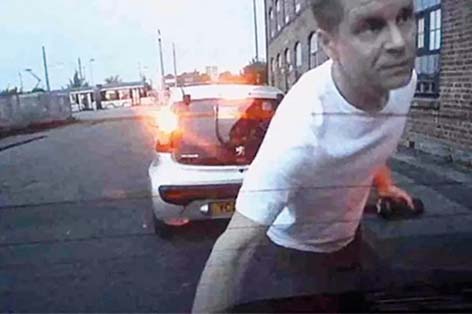
A Nottingham taxi driver “simply doing his job” was left shaken and with a damaged vehicle after a man allegedly attacked his car with a wine bottle on Crocus Street in The Meadows.
The incident, which occurred on April 26 at approximately 8:15pm, saw the driver’s window struck and his registration plate damaged.
The driver was reportedly waiting for his next fare when a woman asked him to move on. Shortly after, a man emerged from a nearby property, banging a wine bottle against one of the taxi’s windows before attempting to open the vehicle's doors.
PC Sophie Anderson of Notts Police condemned the attack, stating: “The victim was simply doing his job when he was threatened and his taxi damaged. He has been left feeling anxious as a result and we want to trace whoever was responsible.”
Nottinghamshire Police have since released an image of a man they wish to speak to in connection with the incident.
Anyone who recognises the man or has any information regarding the incident to contact them on 101, quoting incident number 25000252572.
ESSEX TAXI DRIVER “FEARED FOR HIS LIFE” IN ALLEGED “AMBUSH” STABBING

An Essex taxi driver recounted a terrifying ordeal where he claims he “feared for his life” after being allegedly stabbed during an “ambush” by a group of masked individuals while on a fare.
Claudiu Sandra, 26, was working in the early hours of June 8 when he reportedly took a young woman to a residential area of Mistley, near Manningtree. He claims that while waiting for payment, he was suddenly “ambushed” by seven masked people, one of whom was allegedly armed with a knife.
“I totally, definitely, feared for my life,” Mr. Sandra said. “My mind went to one of the worst situat-ions that I can think. I was thinking that every move or thing I say could cost me my life. I was almost speechless until they started attacking me. I then just had to go with the flow and try to protect myself. When it's one versus seven, you can’t really manage.”
Essex Police have confirmed that four people have been arrested in connection with the incident in Brunswick Gardens. Mr. Sandra, a taxi driver for three years, stated that he was left deeply shocked and, once fully recovered, would no longer work night shifts.
Detectives have questioned four teenagers in connection with the incident. Two 18-year-old men from Colchester were arrested on suspicion of causing GBH and have been bailed until late August. Two girls, aged 17 and 16, were also arrested on suspicion of causing GBH and bailed until late August. The investigation remains ongoing.
AXE AND KNIFE ATTACK ON INVERNESS CABBIES LEADS TO ARREST OF TWO WOMEN
Two women have been arrested in connection with an attempted murder after a series of violent late-night attacks on taxi drivers in Inverness, which reportedly involved the use of an axe and a knife.
The terrifying spree unfolded late on Tuesday night, June 24, and into the early hours of Wednesday, targeting drivers from three different taxi firms: Capital Taxis, Inverness Taxis, and City Taxis.
It is understood that the attackers lured drivers to specific pick-up points before threatening them and making off with sums of cash.
At least one person was taken to the hospital for treatment following the assaults.
Police Scotland confirmed the arrests. A spokesman stated: “Two women – aged 23 and 39 – have been arrested in connection with an attempted murder and three reports of robbery in Inverness... Officers are continuing to follow positive lines of enquiry.”
The vehicles involved have been taken by police for forensic examination.
Sources within the taxi trade claim the two women were known to local firms and had been barred. However, systems designed to protect drivers are vulnerable to false names and changes in phone numbers, making it difficult to keep track of known offenders.
Gavin Johnston, owner of Inverness Taxis, described the incident as “disturbing, disappointing, but it is a reality and the kind of thing that we have to increasingly deal with unfortunately.”
He highlighted the challenges of driver security, saying: “We do try to bar people on a regular basis who give us trouble like this, but people use false names and get new SIM cards for their phones.
"It is very hard to keep on top of that, which affects security for the drivers.”
Mr. Johnston also expressed alarm at the nature of the weapons used. “The fact an axe and a knife appear to have been used is very alarming, but knives are a major thing these days. It is not uncommon for our drivers to be seeing knives.”
Sources from City Taxis and Capital Taxis also confirmed their drivers were targeted in the attacks.
POWERFUL AD CAMPAIGNS
BOOKINGS FAST? FOCUS ON CALLS AND APP DOWNLOADS
If passengers can’t find your firm or download your app quickly, they’re booking with someone else. At TaxiSolutions, we run powerful ad campaigns that help taxi firms, like yours, get more bookings fast.
Whether you’re a small firm or a large fleet, we make sure that when someone searches for a taxi, they call you, not your competitor.
What are ad campaigns?
Ads appear when someone searches for “local taxi” on their phone. Instead of clicking to a website, they tap to call your firm directly.
📞 Increased Calls: call ads make it easy for high-intent users to reach your firm instantly.
📍 Local visibility when it matters: Appear at the top of Google search results for terms such as “taxi near me” or “airport taxi” York, right when passengers are ready to book.
📲 More app downloads: target passengers who prefer booking via mobile apps and drive installs without needing a redesign.
🚗 Higher booking conversion rates: these ads connect you with passengers who are actively searching for a taxi ride not passive browsers.
It’s one of the simplest, most cost effective ways to increase bookings.
Real results for real firms
Just last week, one of our clients saw a 38% increase in call volume using Call Ads with no changes to their website, app or fleet.
Call Ads are proven to work for operators of all sizes, from smaller firms to large fleets.
How TaxiSolutions helps
We handle your campaign end-to-end, so that you can stay focused on operations, while we drive the demand.
📊 Keyword research and strategy: identify high-performing, low-competition terms that drive action.
🛠C Custom ad creation: built around your services -airport runs, wheelchair-accessible vehicles, long-distance trips, etc.
🎯 Geo-targeting by service area: ensure your ads show only where you operate, maximising return on investment.
📈 Ongoing optimisation: we continuously refine your campaigns to increase results and reduce wasted ad spend.
Let’s grow your firm today
Ad campaigns aren’t just for big operators, they work for any taxi firm that wants to stay competitive in 2025.
Want to see how it works?
Call us on 0330 088 6006 today and we’ll show you what’s possible with TaxiSolutions
JUST DESERTS
MAN TO COMPENSATE DARLINGTON CABBIES WHO HE TARGETED IN RACIALLY ABUSIVE TIRADE
A Chilton man has been handed a community order after admitting to racially abusing and threatening two taxi drivers in separate incidents.
Ayden Carrick, 33, of Chilton, appeared at Newton Aycliffe Magistrates’ Court on, June 3, 2025, where he pleaded guilty to charges of threatening to cause criminal damage and attempted racially aggravated harassment.
The court heard that on Monday, June 2, Carrick threatened to damage one taxi driver's vehicle and directed racially abusive language at another.
Both victims reported being “distressed by the nature of the comments and threats.”
Magistrates sentenced Carrick to a 12-month community order, which includes an uplifted requirement of 60 hours of unpaid work to reflect the racial aggravation of the offence.
He was also ordered to pay £100 in compensation to each victim. No additional court costs were imposed.
LEEDS MAN JAILED FOR 8 MONTHS AFTER THREATENING CABBIE AND KICKING POLICE OFFICER

A Pembrokeshire taxi driver has spoken of enduring nightmares and profound family fears after being robbed at knifepoint and pricked with a needle by a couple in Milford Haven last October.
His harrowing victim statement was read at Swansea Crown Court on Monday, June 9, before Ashlee Rees, 23, and Kelly Rees, 35, were sentenced for their roles in the terrifying incident.
The victim, a man in his sixties, conveyed the lasting impact of the attack, stating: “I don’t trust anyone anymore. I’m very wary who I pick up.”
He expressed a belief that the robbery was “pre-planned,” adding: “I don’t know why anyone wanted to do this to me.”
The emotional toll extended to his family, as he recounted: “My grandchildren worried I was going to die.” He now suffers from “recurrent nightmares” and undergoes regular blood tests due to fears of infection from the needle.
Crown prosecutor Alycia Carpanini detailed the incident, which occurred on the evening of October 18, 2024, in Trafalgar Road, Milford Haven. As the taxi driver arrived to collect a pre-arranged fare, Ashlee Rees opened the passenger door, brandished a knife, and demanded: “Give me your ****ing wallet.”
Initially thinking it was a joke, the driver attempted to disarm him but then felt a “prick on the outside of his right thigh.” It was at this point that Kelly Rees reached into the vehicle, seizing a blue canvas bag containing between £50 and £80.
The driver sought hospital treatment, where it was confirmed his skin had been pricked by a needle, leading to immediate blood tests. Although three boxes of syringes were later found at Kelly Rees’ home, she claimed they were for her blood-thinner medication.
Ashlee Rees, of Lamphey, pleaded guilty to robbery and possessing a knife blade. Kelly Rees, of Milton, admitted robbery but denied using the needle, a charge she was later convicted of following a trial.
Both defendants had prior convictions for theft-related offences, and their barristers attributed their “spiral of offending” and “relapse” to drug use.
Judge Catherine Richards handed Ashlee Rees a total sentence of three years in jail and Kelly Rees three years and nine months.
Addressing the pair, Judge Richards stated: “This was a plainly-planned incident in which you both deliberately targeted a lone taxi driver.”
CCTV: YOUR SECURITY
SOUTH STAFFS TO INTRODUCE PANIC SWITCH AUDIO RECORDING FOR ENHANCED SAFETY IN TAXIS
Taxi drivers and passengers in South Staffs will soon have the option to activate audio recording during journeys via a new “panic switch” system. This move by South Staffs Council’s licensing committee aims to bolster safety following a worrying spate of assaults on cabbies in the region.
The decision to permit the installation of CCTV systems with optional audio recording comes after an extensive consultation last year, which garnered significant support for the measure. An overwhelming 88% of the 1,329 respondents believed audio record-ing would enhance passenger safety, while 96% felt it would better protect drivers.
A council report underscored the escalating safety concerns, referencing “several high-profile assaults on licensed drivers.”
The report stated that: “Given the risk to the council’s drivers, the position on audio recording and its crime deterrent benefits has been reviewed, to provide greater protection to drivers.”
While not mandatory, the new policy will allow drivers to install the audio equipment if they choose. Crucially, a “panic switch” will be fitted inside the taxis, which is mutually accessible enabling either the driver or the passenger to initiate audio recording when necessary.
MANDATORY TAXI CCTV IN NOTTINGHAMSHIRE: SAFETY v BURDEN ON DRIVERS
A push by Reform UK to mandate CCTV in all Nottinghamshire taxis has sparked a debate, with concerns rising that the move could place an undue “burden on drivers” and exacerbate an existing loophole allowing drivers to register outside the county.
Reform UK, now in charge of Nottinghamshire County Council, called for mandatory CCTV in a letter to the city council and all seven district and borough councils, citing the Baroness Casey report on CSE and grooming gangs, which highlighted issues with taxi licensing.
Cllr Rory Green, cabinet member for children and families, stated in a letter: “Currently, no local authority in Nottinghamshire requires CCTV in taxis - an absence of protective infrastructure that leaves children, vulnerable adults, and taxi drivers themselves without critical safeguards.”
He further emphasised the need to learn from “serious failures identified in Professor Alexis Jay’s inquiry into Rotherham Council,” where lax licensing contributed to widespread child exploitation.
However, the proposed cost of installation per cab has raised fears among most Notts councils. A collective response from authorities, including Nottingham City Council and Mansfield DC, warned that without closing the loophole allowing drivers to register elsewhere, such a local mandate “risks incentivising drivers to register with other councils that do not impose the same standards, undermining both the effectiveness of the policy and the ability of councils to regulate vehicles operating in their area.”
They also highlighted “concerns around the financial and administrative burden on drivers, particularly in relation to data protection responsibilities.”
Currently, around 700 Nottingham city residents are licensed with Wolverhampton, illustrating the scale of the cross-border licensing issue. Cllr Green acknowledged this challenge, stating: “I’m not naive to the fact that some drivers would jump ship to circumvent the rules, so we also need to work on closing those loopholes.”
Despite the councils’ concerns, former taxi driver and new Reform UK Councillor Joseph Rich, who signed the letter, believes the cost is a worthwhile investment for safety. “It’s a big protection for the taxi drivers themselves and for those who use them,” he said.
“Most cabbies recognise that they would have to pay a few hundred pounds for this improvement to keep people safe.” While most councils advocate for a national approach to mandatory CCTV, some, like Newark and Sherwood DC, remain open to discussion on implementing measures to increase public confidence.
FUNDING FOR CCTV IN WEST SUFFOLK COUNCIL - PILOT SCHEME TO PROTECT PASSENGER & DRIVER SAFETY
Protecting the safety of taxi passengers and drivers alike is the focus of a new pilot scheme that is being launched in West Suffolk.
West Suffolk Council has secured funding for a voluntary pilot scheme that will see CCTV installed in 30 taxis – 10 in Bury St Edmunds, 10 in Haverhill and another 10 in Newmarket. It comes just weeks after the Casey report on the child grooming scandal, and the allegation that taxi or private hire drivers were involved, which means it is crucial that the industry has measures in place, to protect not only drivers themselves but the industry, from serious allegations.
While the council has not been made aware of such allegations in West Suffolk, it nevertheless takes public safety including that of customers and drivers, very seriously. The CCTV pilot scheme has been secured with funding from Suffolk Community Foundation through the Serious Violence Duty Grant making Programme.
The six-month scheme which will cost around £18,000, will be entirely voluntary. But if the pilot proves successful, the council can consult with the rest of the 600 taxi fleet on options to take it forward.
A council spokesperson said: “We are hoping that drivers and operators will see the advantages of CCTV in their vehicles. CCTV offers protection and reassurance to their customers at a time when passenger safety has been flagged through the Casey report.
West Suffolk taxi drivers can take advantage of this offer by emailing: licensing@westsuffolk.gov.uk and include Taxi CCTV in the subject line.
Thanks to west Suffolk council and a huge thanks to Tim for his efforts in making this happen. So, what are you waiting for, get protected, get covered, get insurance discounts and get it all free, including front facing camera, monitor, switch controlled audio, one month average recording cycle. This offer does not come around often!
PETERBOROUGH COUNCILLOR PUSHES FOR MANDATORY UK-WIDE CCTV AMID SAFETY DEBATE
A Peterborough independent councillor has launched a petition advocating for compulsory CCTV installation in all licensed taxis and private hire vehicles across the UK, arguing it would enhance safety for both passengers and drivers.
Cllr Daisy Blakemore-Creedon believes such a measure would boost public confidence, particularly for those travelling late at night.
“CCTV can make a real difference. It deters bad behaviour, helps resolve disputes, and gives people more confidence to get home safely, especially late at night,” she wrote in her petition.
She also emphasised the benefit for drivers, stating: “Drivers deserve that security too, many work alone, often in vulnerable situations. This is a simple, sensible step that would make a big impact.”
Blakemore-Creedon, who resigned from the Labour Group earlier this month citing accusations of racism after raising the CCTV issue, stressed the non-political nature of women’s safety.
“Women’s safety should not be politicised. Peterborough needs to act. Let’ s stop debating and start protecting the people that rely on these journeys every day,” she posted on social media.
However, the proposal has drawn mixed reactions from some in the taxi industry. Jake Carter, a Peterborough hackney driver, acknowledged the initial appeal of increased safety but highlighted the financial burden on drivers, noting: “The cost of this CCTV equipment has to be borne by the drivers. You can’t just install the cheapest system, you’ve got to go with the one recommended by the council.”
He also pointed out that taxis are often used as private vehicles, raising privacy issues if cameras were mandated to be on continuously.
Carter suggested a different approach for CCTV implementation: “If it was to be worked a bit differently where a council took the cost and allowed drivers more flexibility about when the CCTV could be switched on or off, then it might be something the drivers would consider. It should be sold as benefiting the drivers as much as benefiting the public.”
UBER UPDATE
RESEARCH REVEALS UBER DRIVERS SEE EARNINGS CUT AMIDST ALGORITHM CHANGES
Uber drivers across the UK are earning “substantially less” per hour following the introduction of a “dynamic pricing” algorithm in 2023, which has also coincided with Uber taking a significantly larger share of fares, new research from the University of Oxford has found.
The study, released on 19 June by Oxford academics, analysed data from 258 UK Uber drivers covering 1.5 million trips. It reveals a dramatic shift in Uber's “take rate,” from an initial fixed 20% (later rising to 25%) to an average of 29%, and in some instances, exceeding 50% of a fare.
The dynamic pricing model, an evolution of Uber’s previous “surge pricing,” was implemented in 2023, variably setting both driver pay and passenger fares. However, the research indicates that while “Uber’s passengers now pay higher prices, but the drivers are not better off.”
The findings suggest that “many aspects of Uber drivers’ jobs have become worse,” with average hourly pay stagnant and declining in real terms since the algorithm’s introduction. The report, concluded that: “Many drivers are earning substantially less per hour.”
Unions have long criticised Uber’s lack of transparency regarding its algorithmic pricing. The GMB Union, welcomed the report but expressed concerns that the system primarily benefits Uber, not drivers and is seeking greater clarity on fare calculations, including the role of “behavioural insights.” It is also calling for negotiations on the proportion of surge pricing drivers receive and a review of “Engaged Time” calculations.
One driver interviewed for the study highlighted the opaque nature of the new system, stating, it’s only when passengers volun-teered the fare prices in conversations with drivers that “you discover Uber is robbing us and the customer”.
Despite the research findings, Uber disputes the figures. A spokes-person said: “Uber drivers in the UK took home over £1bn in earnings between January and March of this year, which is up on the year before. Drivers choose to drive with Uber because we offer flexibility when they work and provide full transparency over the trips they accept.”
Uber maintains that “Every driver is guaranteed to earn at least the national living wage” and that “All drivers receive a weekly summary of their earnings, which includes a clear breakdown of what Uber and the driver received from trips.”
UBER SECURES FIVE-YEAR LICENCE TO OPERATE IN YORK AFTER INITIAL 12-MONTH LICENCE
Uber has been granted a five-year PH licence to continue operating in York. The decision, made by City of York Council officers through delegated powers, follows a 12-month probationary period that began in June 2024.
The council stated that Uber “met the conditions of licensing to operate in York” during this initial period, paving the way for the longer renewal.
This marks a significant turnaround from 2017 when the council refused to renew Uber’s licence due to a “significant data breach and 155 complaints lodged against its drivers.”
Matthew Freckelton, Uber’s head of cities, expressed the company’s delight, noting that expansion into other cities has taken place over the past 18 months. He highlighted Uber’s growing presence in York, now based at the Bonding Warehouse, and its commitment to recruiting local drivers.
Two key conditions imposed last year remain in force: ensuring drivers know how to access the city centre through bollards for blue badge holders and guiding drivers away from official taxi ranks.
Matt Boxall, head of public protection at the council, stated: “Over that 12-month period, Uber met the conditions of licensing to operate in York.”
He added that the renewal “inclusive of additional conditions approved by the committee at that time, including conditions relating to the availability of WAVs, the use of drivers and vehicles that are licensed in other areas, and the importance of providing city centre access for Blue Badge holders.”
ALL THINGS LICENSING
By Mike Smith IoL and Guildford Borough Council
Damning
Perhaps the only word to sum up the latest report into historical Child Sexual Exploitation led by Baroness Louise Casey, who members of the trade may recall authored previous reports into failings at Rotherham Metropolitan Borough Council in 2015. These led to many authorities adopting more rigorous standards for drivers, including mandatory safeguarding awareness training for all licence holders.
The initial report into Rotherham MBC also identified the taxi and private hire trade as a means by which children can be at risk of sexual exploitation, both as a way to traffic victims to different locations as well as a potential way for perpetrators to meet their victims. Even drivers who were not complicit in committing abuse were trafficking young people subject to exploitation to different locations; sometimes in the knowledge that this was taking place or sometimes not picking up telling signs that something was wrong.
The latest report, commissioned by the Prime Minister in January to examine existing data and evidence on the nature and scale of group-based child sexual abuse was published on 16 June and pulls no punches in its criticism of failings; leading the PM to perform a ‘U-turn’ on his previous decision not to set up a National Enquiry into the matter.
The report reviewed how public institutions, such as local authorities and police, have responded to group-based child sexual exploitation. Focusing on the taxi related part of the report, indeed a whole chapter is dedicated to the subject of the link between taxi licensing and abuse. Clearly the number of failings in areas, in addition to Rotherham, show how perpetrators have exploited weaknesses in the current system of setting and enforcing standards within the taxi trade.
The report finds that there some authorities, especially those with previous exposure to group-based exploitation cases, who have gone beyond guidance setting statutory minimums to implement stricter controls. However the report concludes that these are being undermined by a less robust approach elsewhere. The most serious issue identified is the ability for drivers to be licensed in one area but operate in another, making it difficult for local councils to enforce their own safeguarding standards, and risks allowing unsuitable individuals to work under the radar.
Rotherham, for example, has introduced taxi cameras and stringent safeguarding training. My own authority, Guildford, has introduced a livery for hackney carriages, giving the public confidence that they are stepping into a licensed vehicle driven by a professionally trained, licensed driver who has not only completed safeguarding training but also a vocational qualification equipping them with the skills and knowledge required for the role. Guildford also has cameras in vehicles to provide reassurance to both driver and passenger.
However, if drivers from other authorities do not need to meet these standards, then the system of protection becomes unstuck with the report stating that these efforts by some councils have been hindered by more lax approaches in other areas, and ‘legal loopholes’ which mean drivers can apply for a licence anywhere in the country but then operate in another area.
The report produces 12 recommendations, with one specifically relating to taxi licensing calling for this loophole to be closed immediately and for more rigorous licensing standards to be introduced.
The report calls on the Department for Transport to urgently close the out of area working ‘loophole’ and set higher, standardised requirements for taxi licensing across all local authorities. It argues that current arrangements are not fit for purpose and hinder efforts to protect children from individuals and organised gangs performing sexual abuse and exploitation.
Baroness Casey concludes that, while some councils have recognised the safeguarding role taxi licensing can play, the current legislative position creates weaknesses in safeguarding arrangements and calls for immediate government action to ensure all licensing authorities are equipped so that they are able to keep children safe, regardless of where a taxi driver is licensed.
Recommendation 11 of the report says (in full):
The Department for Transport should take immediate action to put a stop to ‘out of area taxis’ and bring in more rigorous statutory standards for local authority licensing and regulation of taxi drivers.
The report can be read at:
Legal Loophole?
The ‘legal loophole’ referred to in the report which Baroness Casey has recommended to be closed, rather than being an ambiguity is actually a combination of primary legislation and case law.
The Deregulation Act 2015 allows an operator to sub-contract a job to another operator licensed by a different local authority. As such, an operator can have a booking office on a high street or on an industrial estate in one licensing authority area where there are high standards and ‘make provision’ for bookings in that area. However, they can hold another operator licence in a different area with lower standards and sub-contract every job to their operator licence where drivers are subject to less stringent requirements and fulfil journeys entirely within the area of higher standards, without having to meet any of the requirements. Provided drivers and vehicles dispatched are licensed by the same authority as the operator then no offences are committed and this is perfectly allowed. This model is used by many operators.
In addition, precedented case law has long established that a licensed operator can accept bookings that start and end outside the operator’s licensing district, and that a private hire driver can undertake journeys starting anywhere as per the judgement Adur District Council v Fry (1997).
More recent case law has also established that private hire drivers have the ‘right to roam’ following the Knowsley (2018) judgement. Again this model is also used by many operators which cover a large geographical ‘region’.
Therefore, closing the ‘loophole’ will not be straightforward and will only be achieved by new primary legislation to repeal the Deregulation Act and to enable some form of national standard and enforcement, or legislate to prevent out of area working.
So what has the Government said?
The Government has responded to the report stating that they will implement all 12 of the recommendations, and has set out a further National Enquiry on grooming gangs.
In its published response, specifically relating to the taxi chapter and recommendations of the report it said:
“The Department for Transport will legislate to address the important issues raised in the report, tackling the inconsistent standards of taxi and private hire vehicle driver licensing.
We will work as quickly as possible and consider all options - including out of area working, national standards and enforcement - seeking the best overall outcomes for passenger safety.
In the interim we will act urgently to make improvements, including consulting on making local transport authorities responsible for taxi and private hire vehicle licensing, and determining how existing statutory guidance can be strengthened to further protect the public.
We are also reviewing authorities’ compliance with existing guidance and will hold those who do not follow it to account.”
What measures are there currently?
Local authorities have a long standing duty under section 17 of the Crime and Disorder Act 1998 to do all it reasonably can to prevent serious crime and violence in its area (emphasis added). There is no duty to consider activities outside of its area, which is particularly pertinent when considering the issue of taxi drivers working outside of the licensed area.
In July 2020, the Government introduced statutory standards for licensing authorities under the Policing and Crime Act 2017. This statute provided statutory guidance on exercising taxi and private hire vehicle licensing functions to protect children and vulnerable individuals who are over 18 from harm when using these services.
The PCA provides recommendations which all councils are expected to implement, unless there is a compelling reason not to. It also suggests suitability checks for drivers, as well as recommending the provision of safeguarding awareness training for licensed drivers.
Whilst many councils have implemented this training, the content, quality, assessment and passing factors varies significantly between providers. This results in potential inconsistencies in the information drivers receive as well as how their knowledge is tested before any licence is granted.
Although the statutory guidance has moved safeguarding forward considerably, the more recent Best Practice Guidance sought a more balanced approach between public safety and unduly burdening the trade.
Finally, the Taxis and Private Hire Vehicles (Safeguarding and Road Safety) Act 2022 advises that if any licensing authority has certain road safety or safeguarding concerns about a driver licensed by another authority, then they must provide relevant information to the authority that issued the licence.
Whilst this is well intended, it is really only effective if the local authority in whose area the driver/vehicle is operating is authorised and resourced by the issuing authority in order to monitor the trade in their area.
To conclude
Clearly the Government wishes to take action to avoid the terrible events and failings taking place across the country reported by Baroness Casey from continuing. Hopefully such a damning indictment of the problems within the licensed trade which allow evasion of strong local controls will bring about the changes required.
In my view, this is not going to be solved by further guidance, as the 2020 guidance has not been effective as intended. Moving taxi licensing to an upper tier authority will also not prevent the issue of out of area working. Properly constructed legislation enabling local authorities to be able to set standards and properly regulate the trade working in their area is needed.
It is also recognised that when the Government has previously examined the question of out of area working, a consensus of the best way forward between regulators and industry could not be achieved. However, following the criticism of the current system and the resulting devastating impact on victims of abuse and exploitation, it is clear now that the Government need only to listen to Baroness Casey and those councils working hard to try and uphold standards in their areas as to what is needed to address the problems.
On a final and different note, the Institute’s Annual Jeremy Allen Award, now in its 14th year, in partnership with Poppleston Allen Solicitors, is open for nominations.
The award is open to anyone working in licensing and related fields and seeks to recognise and award exceptional practitioners who go above and beyond.
This award is by third party nomination, which in itself is a tribute to the nominee, in that they have been put forward by colleagues in recognition and out of respect to their professionalism and achievements.
Nominations for the 2025 award are invited by third parties to info@instituteoflicensing.org and confirm that the nominee is aware and happy to be put forward.
For full details including the nomination criteria, please visit: www.instituteoflicensing.org.
CHARITY CORNER
CRESTA TAXIS SCOOPS UP COMMUNITY SUPPORT WITH FREE ICE CREAM
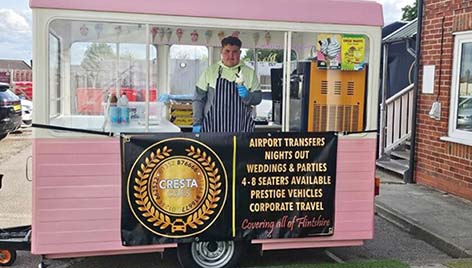
Cresta Taxis sweetened up a recent weekend for families in Deeside and Mold, offering free ice cream for children as part of a community initiative that also raised funds for a local charity.
The event took place at Cresta’s offices, with ice cream served from 12pm to 3pm on Saturday, June 14, in Connah’s Quay, and on Sunday, June 15, in Mold.
The taxi firm teamed up with local entrepreneur-run business Keep It Sweet Chester, hiring its ice cream trailer for the occasion.
While children can enjoy a complimentary treats, adults are encouraged to donate any amount they wish. All proceeds will go to a local charity chosen by public vote.
A spokesperson for Cresta Taxis expressed gratitude to the community, stating: “On behalf of all the team at Cresta Cars, we would like to thank YOU, the local community, for supporting us.”
They also hinted at future community engagement, adding: “In doing so, we are able to do things like this, and this is just the start. We have a lot more planned for the local communities going forward so don’t forget to like and share our page, and keep your eyes peeled for more updates and what we have planned for our amazing local communities.”
EDINBURGH’S BELOVED TAXI OUTING BRINGS JOY AND COLOUR TO CITY STREETS
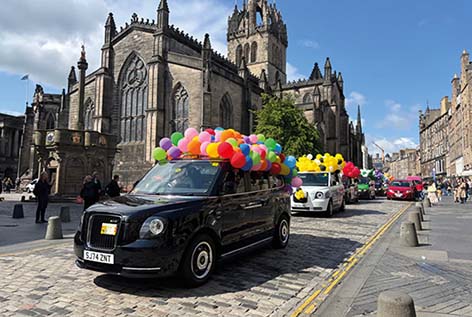
The heart of Edinburgh was awash with colour and cheer on Tuesday, June 10, as the celebrated Edinburgh Taxi Outing paraded through the city, ferrying children with life-altering disabilities and terminal illnesses in a truly special annual tradition.
Dating back to 1947, the event sees Edinburgh’s dedicated taxi drivers transform their cabs into vibrant, balloon-laden spectacles, competing for prizes for the most impressive decorations.
This year’s procession departed from Edinburgh Zoo at 10am, winding its way through the city centre before heading towards Musselburgh, Prestonpans, and ultimately concluding at Archerfield Walled Garden in Dirleton for an afternoon of fun.
Spectators were encouraged to join in the festive atmosphere, even bringing water pistols for a playful interaction with the passing parade.
Among the day’s highlights, Keith from Central Taxis garnered accolades for his impressive unicorn-themed cab, all while he donned a “Where’s Wally” costume.
Central Taxis celebrated his win on Facebook, sharing: “It was fantastic seeing all of the children, drivers and taxis decorated for today’s taxi outing.
“Delighted to see Central Taxis’ member Keith picking up the winner's trophy this year. Have a great day - it’s one day that provides a lifetime of memories!”
The enduring popularity of the event was echoed by local residents online, with one commenting: “A fantastic tradition. Long may it continue and high praise to all the organisers and drivers.”
The outing once again delivered a “fun-filled afternoon” for the children, creating cherished memories before their return home.
GENEROUS LANCASTER CABBIE OFFERS FREE RIDES ON FINAL DAY BEFORE RETIREMENT
A veteran taxi driver in Lancaster has marked his retirement by offering all his customers free rides as a gesture of appreciation for their years of support.
Anthony Wilson, who has served the community for over two decades with 848848 taxis, hung up his keys for the last time on Friday, May 30.
To celebrate his retirement, he dedicated his final shift, from 5:30am to 3:30pm, to providing complimentary journeys to every-one he picked up.
Wilson announced his farewell on Facebook, expressing “mixed emotions” about leaving the trade. He extended his gratitude to his “valued customers from Lancaster and Morecambe, for your continued support throughout my years’ success of driving a taxi.”
Reflecting on his career, Wilson shared: “There are so many stories to be told and so many good and bad memories to be taken from my many years’ experience of providing a service.”
He also paid tribute to his colleagues, adding: “I haven’t got a bad word to say about anyone and it’s been a pleasure to have worked with every one of you for all these past years. The banter has been great.”
Urging continued local support for the taxi industry, Wilson concluded his heartfelt message with the promise of free rides. He ended with a warm farewell to both colleagues and regular customers, stating: “You will all be sadly missed and I wish every one of you the very best for the future.”
SMILES ALL AROUND AS GLASGOW TAXIS BRING JOY TO TROON FOR 78TH ANNUAL OUTING
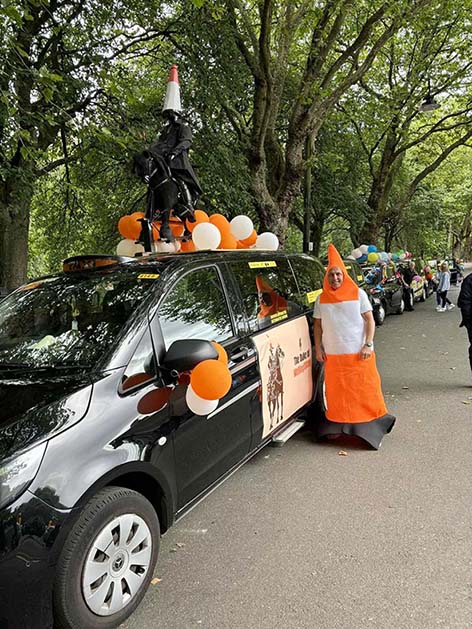
Hundreds of children with additional support needs enjoyed a day of seaside fun and festivities as the 78th annual Glasgow Taxi Outing made its vibrant journey from Kelvin Way to Troon.
Dubbed “one of the happiest and most joyful days in Glasgow’s calendar,” the cherished tradition saw over 125 brightly decorated taxis transport around 350 children to the Ayrshire coast.
Since its inception in the 1940s, the event has been a testament to the generosity of Glasgow’s taxi drivers, who dedicate their time to provide an unforgettable day out for these children. This year, the spirit of fun was higher than ever, with drivers going all out on decorations and fancy dress.
One standout was 50-year-old Derek Barr, who paid homage to Glasgow’s famous Duke of Wellington statue by creating a model for his taxi roof and even dressing as a traffic cone. “This is my 10th year. It’s been going on for so long, and you need to do it for the kids. It’s brilliant,” he said.
Barr specified the highlight for him: “Leaving here and getting to Troon, and everyone comes out to give you a cheer. It’s amazing seeing the kids’ faces. It gets bigger and bigger every year, thanks to everyone who turns up and donates to the charity.”
Charlotte McDonald, 9, was among the excited children. Her mother, Sam, expressed her delight, telling Glasgow Live: “We come to this every year. She absolutely loves it, and I do too. The kids get spoiled and they all get so many good treats and activities.
“It's been going on for a long time and it’s such a lovely thing.”
Stephen Lalley from the Glasgow Taxi Outing Fund emphasised the importance of the event for children with additional support needs, many of whom are in wheelchairs and lack easy access to beach facilities. “We’ve got the transport and that’s why we take them to Troon,” he said.
The event also holds special significance for the destination. Nick Power of Troon Community Council noted: “It brings the town together. We want to make the event bigger and better each year.”
BRIGHTON CAB TRADE VIEW
By Andy Peters, BHCTA www.bhcta.co.uk
In plain sight
A rogue ‘cab driver’ was convicted for the second time recently (original conviction sentenced to 23 years over-turned on appeal for a retrial). The rapist had travelled from Pevensey to Brighton pretending to be an Uber driver. (See page 32 for full story) At the time he was using a silver Mercedes saloon with no door signs, effectively using a plain vehicle. This is an example that takes us back to before the 76 Act where private hire was unregulated with unlicensed vehicles used without any door markings or rear plates.
So, isn’t it ironic that the DfT considers it best practice for PHVs not to have company door signs, with Wolverhampton agreeing on this on the basis that ‘...anyone could put on a fake door sign and pretend that the vehicle is a cab’. I know, there is no logic in that? A few years ago when Uber landed here in the city it actually sent out a message to the PHVs that were working here under Uber to remove all door signs, but it was very quickly retracted!
Isn’t it actually best practice for all licensed vehicles to have door livery/company identification to avoid people getting into unmarked rogue cars? Please don’t give me the old excuses that ‘...my cab is also my private car...’ and ‘...door signs make a cab a target...’ rubbish! My taxi is white with aqua boot and bonnet and stands out a mile like the 600 here in the city, and only on the very odd occasion has there been such an issue, and random at that.
Yes, I know TfL PHVs don’t have company door signs, and even worse, miniscule, hard to read roundel licences in the front and rear screens, but does that make it right?
Official door signs are there for public safety, end of.
The Casey Report
We recently had the National Audit on Group-Based Child Sexual Exploitation and Abuse report from Baroness Casey, where ‘Taxi Licensing’ (not a good start getting the terminology wrong) was included under Chapter 7.
This hit the headlines with statements such as ‘Cross-border loophole must be ended!’ and so on. Then, if you read the report there is no actual specific reference to this, only really a hint. The main reference is where it stated some licensing authorities “...go above and beyond statutory guidance...of combating child sexual exploitation...where others are less stringent...where legal loopholes mean drivers can apply for licences anywhere in the country...”
So, I read the report as concentrating on ‘standards’. These standards being specific training with awareness courses for safeguarding vulnerable passengers and so on. Especially when you read; “However, several areas we visited which were imposing rigorous standards were left frustrated by seeing taxi drivers freely operating in their areas having been licensed by other authorities who were perceived to operate less rigorous processes.” Can you see where I am going on this?
In Brighton & Hove we have had this for a few years now and a refresher is needed every three years via the Blue Lamp online course as and when the driver licence is renewed. I’m sure this is similar in the majority of local authorities.
There is the reference to Andy Burnham, the Mayor of Greater Manchester, where again ‘standards’ are mentioned, where he was quoted to have stated in 2023 “...that other authorities’ checks were not as stringent.”
So, what is the loop-hole that needs to be closed? Is it where a national minimum standard is set so that all local authorities adhere to one set of standards for driving training requirements with exactly the same course throughout the 300 or so authorities?
If that is the case then the government will never take action on cross-border hiring because every single driver will be of the exactly the same standard, so boo-hoo to you and carry on working alongside all those out-of-town cars. Can you see where I am going with this?
It will be exactly the same now with local conditions of licensing beyond any ‘national standard’, such as for vehicle age requirements, specific livery, compulsory WAV etc. Can you see where I am going with this?
However, would a ‘national standard’ actually stop those criminals in the trade from the heinous crimes as quoted from the report;
“As a key part of the nighttime economy, taxis have historically been identified in a minority of cases as a way children can be at risk of sexual exploitation, both as a potential way for perpetrators to meet their victims, as well as a means of trafficking victims to different locations and introducing them to other perpetrators.”
Of course not. We could have all gone through exactly the same course and training, all been made to wear suit and ties, but that would still not stop those criminals that ‘drive amongst us’ from their criminal activity.
Quite simply, under the guise of a licensed cab, be it a hackney or PHV, it is a perfect way of hiding in plain sight for transporting vulnerable children and adults for people trafficking and all that entails.
They don’t have to be working for any company or app, or even taking legitimate bookings. They can freely travel up and down the country getting up to their no good, effectively unnoticed due to cross-border hiring where it has now become the norm to see licensed cabs, and mostly PHVs, many miles away from their respective licensing authority.
So, Baroness Casey, please take note: you can introduce all the ‘standards’ that you want, but unless you tackle cross-border hiring (as it is commonly known) and stop the ridiculous licensed vehicle ‘predominantly out of area working’ (POAW) then someone else will be writing the same report that you have produced in five years’ time.
But how do you do it? Well, there are three different ways:
1: Enforce existing legislation under the Local Government Misc Provisions Act 1976.
2: ABBA: where the booking/journey must either begin or end in the same licensed area as the vehicle.
3: Enforce an ‘Intended Use Policy.
The issue with number 1 is that this is open to legal interpretation in court and to date no council has used anything in the 1976 Act to stop cross-border hiring. Additionally, what about the London Private Hire Act 1998?
That brings us on to another major point. Are any possible changes going to be made under both Acts? Or is there going to be just one brand new Act?
The issue with number 2 is that it is very, very restricting and is the most likely one that will be fought against by you know who with their charismatic barristers and even local operators serving rural areas that have no taxi/PH/bus transportation.
An example being that a PH company takes a job that starts from their own area, ‘Area A’ to go to ‘Area B’ a couple of hundred metres across the border, so far so good. A great service is given and the customer, if impressed, phones the company up and wants to go from ‘Area B’ to Gatwick which is in ‘Area C’. The company cannot do this under ABBA.
Just the same as if a London cab picked up from Heathrow that is in ‘Area A’ and takes the customer just over the border to ‘Area B’. The customer loves the cab and the driver and asks the driver to pick him up the next day to go to Brighton, which is in ‘Area C’. The London cab driver could not do this under ‘ABBA’. So the customer gets an Uber instead. Can you see where I’m going with this?
Let’s look at number 3, the Intended Use Policy applied to a vehicle licence and the operator licence that stops the vehicle from predominantly working out of area. This has got to be the best way to go as it is halfway there already because a local council can currently apply an ‘IUP’ to a hackney and there is absolutely no plausible reason that it cannot be applied to a PHV. Although some would argue about that.
The main question that is always asked about this is, what is ‘predominantly’. That is the easy part. If you take an eight-hour shift and the vehicle has covered more than 50% of the work in another area then that is exactly what ‘predominantly’ is.
An example is what has recently happened here in Brighton. Over the last few weeks we have seen a number of Mid-Sussex hackneys (just above Brighton) appear in the city at the weekend and stay here obviously working under Uber. Knowing that Mid-Sussex has an ‘IUP’ for hackneys, just the same as Brighton does, plate numbers were taken and reported to Mid-Sussex Licensing which acted quickly and reported back that warnings have been given to the proprietors of those hackneys of the consequences of not complying with the policy. So it does work, and it works because the trade here effectively enforces it. The same as the local trades in other areas would. See iupolicy.co.uk for details.
Interestingly I had an across the table conversation with the Uber rep at the last Trade Forum meeting here and I asked if he knew about my report to Mid Sussex, which he did. I questioned why Uber allowed it to take place when it knew that Mid Sussex had the ‘IUP’ for hackneys and the subsequent consequences. He gave me and others there the impression that it wasn’t their problem.
I can see where he was going with that!
KNOW YOUR RIGHTS
As always at Patterson Law we keep you updated with any changes to the law, and this month there has been one substantial change regarding driving without due care and attention that could have significant impacts for taxi and private hire drivers.
The offence
Driving without due care and attention is where the standard of somebody’s driving has fallen below that of a careful and competent driver and can range from something minor such as overtaking a cyclist too closely to driving bordering on the dangerous, such as overtaking on a blind bend and causing a collision.
Many cases of driving without due care attention are dealt with out of court by way of a driver improvement course or a fixed penalty of 3 points and a £100 fine. But here, we are looking at cases that have proceeded to court. There are two reasons a case will proceed to court; if the matter is too serious for a course or fixed penalty, or if the driver has rejected that offer and chooses to have a court hearing.
When the case gets to court, the driver will be at risk of 3-9 penalty points or a disqualification (plus a fine). However, exactly what they receive depends on the Sentence Guidelines. Every UK Magistrates’ Court will have a set of guidelines which they must apply.
These guidelines changed on the 1st July and take effect for any case sentenced on or after the 1st of July, regardless of when the offence was committed. And it’s this change that could impact professional drivers.
The change
Under the old guidelines, there were 3 categories of offence: Which category you are in depended on two factors: harm and culpability.
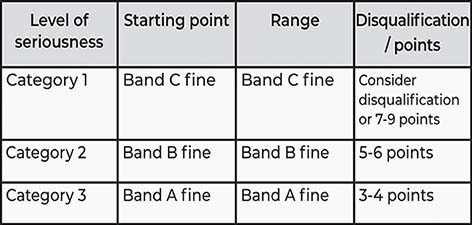
Which category you are in depended on two factors: harm and culpability.
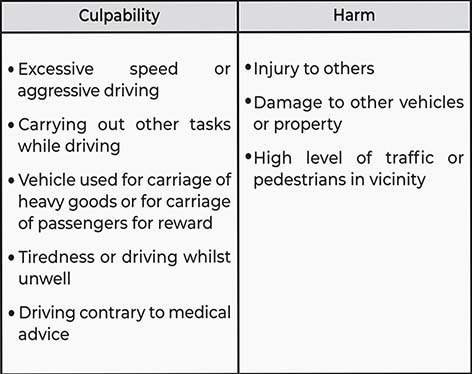
If there was both harm and culpability it would be category 1 which is 7-9 points or a disqualification. If there was either harm or culpability but not both, it would category 2 which is 5 or 6 points, and if there was neither harm nor culpability, it would be category 3 which is 3 or 4 points.
As you can see from the factors in the table above, simply driving for hire or reward was automatically a factor for higher culpability.
So any private hire or taxi driver who had even the most minor collision would automatically have both harm and culpability, would be placed in category 3 and would be at risk of a minimum 7 points. Even without a collision, even the most minor of offences would see a professional driver placed in the second category and at risk of a minimum 5 points.
The new guidelines
The new guidelines came into force on the 1st July 2025, and have completely removed all factors of harm and, significantly for professional drivers, removed culpability factors of being a professional driver.
The new guidelines, take into account only culpability when it comes to penalty points. There are still 3 factors, but it’s now solely dependent on the standard of driving, rather than levels of damage or injury and rather than being a professional driver:
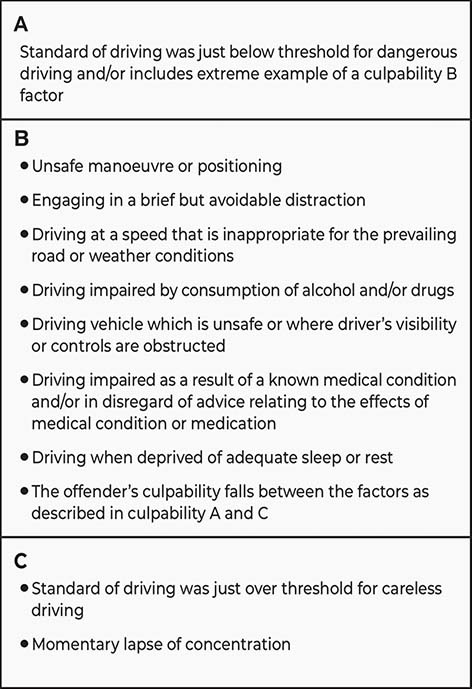
As you can see, there are still 3 categories and the penalty points are still the same (Cat A is 7-9 points or a ban, Cat B is 5-6 points and Cat C is 3-4 points), but being a professional driver is no longer a factor to be considered.
Harm is also no longer a consideration for penalty points - but instead is simply a factor to determine the appropriate level of fine (if there has been a collision the driver may receive a higher fine, but no additional penalty points).
Putting the new guidelines into practice
The main reason for the change was to remove perceived elements of unfairness for professional drivers, and for drivers who managed to avoid a collision through no fault of their own. This can be shown in the two hypothetical (but very real) examples which follow:
Mr A is driving on a country lane and overtakes a vehicle at excess speed on a blind bend. Another vehicle approaches on the opposite side of the road and out of pure luck, manages to swerve and avoid a collision with Mr A. This standard of driving has clearly caused significant danger, but under the old guidelines there is only culpability. As Mr A managed to avoid a collision through no fault of his own, there is no harm. So he would be placed in category 2 and receive 5/6 points.
Compare this with Mr B. Mr B is a private hire driver and takes his passenger to their destination. Upon pulling over to the side of the road, he has a minor collision at slow speed with a parked vehicle. Even though no danger has been caused and this is clearly a minor offence, because there is damage and because he is a private hire driver, there is both harm and culpability, so he is placed in Category 1 and would receive 7-9 points or even a ban.
Clearly here there was an element of unfairness. Mr A’s sentence depends not on his driving, but because the other driver managed to swerve and avoid a collision. So through another driver’s evasive manoeuvre, he is Cat 2 rather than Cat 3. Whereas that cannot apply to Mr B as he is automatically deemed culpable simply because he is a private hire driver.
The new guidelines have rectified this.
Mr A’s driving would now likely be considered: “just below the threshold for dangerous" and be considered as category A - 7/8/9 points. Whereas Mr B’s driving would now be considered as a minor misdemeanour, category C and only 3 or 4 points - or even a driver improvement course instead of prosecution.
It’s not often the law changes in favour of the professional driver, but this is one of those rare occasions.
If you currently have a case against you or are ever accused of driving without due care and attention, please do call us for free legal advice on 01626 359800.
We are currently dealing with cases based on these new guidelines and mitigating in court to ensure the court is imposing the correct sentences to ensure fairness for all professional drivers.
WORLDWIDE TAXI FOCUS
from India
‘DOCTOR DEATH’ WHO MURDERED DOZENS OF CABBIES APPREHENDED

Devendra Sharma, the infamous Ayurvedic doctor turned serial killer dubbed ‘Doctor Death’, has been recaptured by Delhi Police's Crime Branch after spending months on the run. The 67-year-old convict, who allegedly murdered over 50 individuals, primarily taxi drivers whose bodies he fed to crocodiles, was found disguised as a spiritual leader in a secluded monastery in Rajasthan.
Sharma had been at large since August 2023, when he was on temporary release from jail. Deputy Commissioner of Police (Crime) Aditya Gautam stated that Sharma's arrest followed a “long, covert operation.” Gautam added: “We launched a search operation in several cities. His identity was finally established through forged documents.” The six-month-long manhunt concluded with Sharma's capture at the monastery where he had been preaching to followers under a fake identity.
Sharma was serving a life sentence for a brutal spree of murders committed between 2002 and 2004. Police describe his chilling modus operandi: he would lure unsuspecting taxi and truck drivers under the guise of booking services, then kill them, and dispose of their bodies in a crocodile-infested canal to eliminate evidence. While police estimate at least 50 victims, some reports suggest the number could exceed 100.
Before his turn to serial murder, Sharma was deeply involved in an illicit kidney smuggling racket. Between 1995 and 2004, he allegedly orchestrated a nationwide illegal kidney transplant network, facilitating over 125 transplants by coercing or persuading poor individuals to part with their organs for wealthy recipients.
Police sources also revealed Sharma's involvement in a range of other criminal activities, including theft, kidnapping, and smuggling. He is accused of robbing trucks, murdering the drivers, and selling the stolen cargo on the black market. Sharma currently faces charges in 27 cases spanning multiple categories of crime. Authorities anticipate his re-arrest will provide new insights into unresolved murders and trafficking operations linked to his extensive criminal past.
from USA
NYC FINALLY HITS 50% WAV YELLOW CAB TARGET AFTER YEARS OF DELAYS
After enduring multiple missed deadlines, New York City has finally fulfilled a legal commitment to make half of its operational yellow taxi fleet wheelchair accessible.
The Taxi & Limousine Commission (TLC) confirmed on June 5 that 50.7% of currently active yellow cabs are now equipped with ramps for wheelchair and scooter users.
This milestone marks a significant development in a long-running federal class action lawsuit, whose landmark 2013 settlement initially aimed for half of the entire fleet of 13,587 taxis to be accessible by 2020. That deadline, along with a subsequent 2023 extension, had previously passed unmet.
Currently, 5,140 yellow taxis out of those in service meet the accessibility standard. However, challenges remain, as approximately 3,000 more medallion cabs are in storage and not on the road. The TLC faced repeated hurdles, including the rise of app-based ride-hailing services that depreciated taxi medallion values and the pandemic, which further reduced the number of active cabs.
The federal judge overseeing the case, George Daniels, initially likened the 2013 settlement to Jackie Robinson breaking baseball's colour line, calling it “one of the most significant acts of inclusion since Jackie Robinson joined the Dodgers.” However, he later expressed bewilderment and “scolded TLC” last year for repeated delays, prompting a new formula to reach the target.
This included an August 2024 enforcement order requiring all new taxis entering service to be WAVs and a restructuring of the Taxi Improvement Fund to assist medallion owners with conversion costs, which can be $100,000 per vehicle.
Bhairavi Desai, president of the New York Taxi Workers Alliance, noted the financial burden on drivers: “That’s just for the vehicle, the retrofitting with the ramp, painting the car.” At the time of the 2013 settlement, only 213 taxis, barely 1.5% of the total fleet, were wheelchair accessible. While significant progress has been made, the TLC now faces another deadline in 2028: making 50% of the entire fleet, including those currently off the road, wheelchair accessible.
from Canada
ELEVEN CHARGED IN TORONTO TAXI SCAM WHICH NETTED OVER $500,000
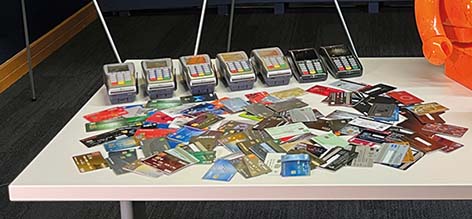
A sophisticated taxi scam that allegedly defrauded unsuspecting customers of more than $500,000 has led to the arrest and charging of eleven individuals in Toronto. Police announced that the group, accused of being a criminal network, faces a staggering 108 charges following a 10-month investigation dubbed “Project Fare.”
The elaborate scheme involved suspects posing as legitimate taxi drivers, operating vehicles modified to resemble licensed cabs. Det. David Coffey of the Toronto Police Service explained the modus operandi: “Unsuspecting victims were picked up and asked to pay for the ride using a credit or debit card. During the transaction, the suspects discreetly swapped the victim’s card with a card that looked like theirs. The real card and their PIN was then passed on to accomplices.”
These stolen cards and PINs were then used to drain bank accounts, deposit fraudulent cheques, and make high-value purchases including electronics, gift cards, and luxury clothing. Police displayed some of the seized items, including high-end fashion and artwork, at a news conference.
The investigation, which began last July after a surge in victim reports, quickly escalated from 61 initial incidents to over 300 confirmed frauds. On May 21, the police financial crimes unit, supported by various divisions, executed three search warrants, leading to arrests and the seizure of point-of-sale terminals, bank cards, and vehicles resembling taxis.
The suspects, ranging in age from 19 to 50, include ten men and one woman from the Greater Toronto Area. Charges laid include fraud over $5,000 and possession of proceeds of crime over $5,000. Police are actively searching for two additional male suspects and a female person of interest in connection with the scam.
from Philippines
TAXI DRIVERS FORCED TO GIVE 40% EARNINGS TO AIRPORT POLICE
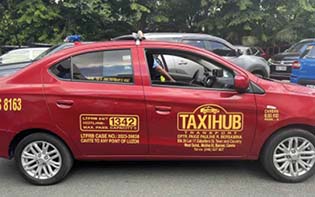
Cabbies at Manila Inter-national Airport charge high fares because they must give 40% of earnings to the airport police, according to a taxi driver.
In a recent report by journalist, it was said the cabbie stated if they don’t make a payoff, the Airport Police Department (APD) will give them a ticket, which they must redeem in the Land Transportation Office (LTO).
Transportation Secretary Vince Dizon said the five names provided by the taxi driver have been verified as actual officers of the APD and they have been immediately suspended.
Dizon stated: “There are also other drivers who are willing to talk, and say who is extorting money from them... The investigation is ongoing.”
According to the driver, who went viral on social media for charging a passenger P1,200 for a 20-minute ride from NAIA Terminal 3 to Terminal 2, officials of the APD demand a 60-40 arrangement where they receive 40% of drivers’ earnings.
Non-compliance causes taxi drivers to be held back from lining up at airport taxi bays and be subject to harassment, tickets and fines.
After the driver met with Secretary Dizon to discuss the arrangement between taxi drivers and airport police, Dizon had stated: “This is a heavy problem... We are thankful [for driver] because he took the risk of coming forward to tell us about the practice of taxis in the airport.
“These schemes will not happen if there was no accomplice inside, and this is the perfect example. This must have been going on for decades. It has happened over and over again.”
On behalf of the DOTr, Dizon assured security and safety for the taxi driver and said that he will be talking to the LTO and the Land Transportation Franchising and Regulatory Board (LTFRB) on the issue.
The LTO has since suspended the cabbie’s licence pending further investigation after authorities also discovered that his operator, TaxiHub, was operating on an expired franchise.
BERNIE THE BOOK
RAHM TO SUP FROM CLARET JUG - SINNER TO AVENGE PARIS HEARTBREAK
But first a question: What do sports fans do when there’s no footy? Answer: there is no meaningful length of time without it!! Even the off season is taken up with World Cup qualifiers, international friendlies and the FIFA Club World Cup, when traditionally our underpaid and over massaged superstars should be relaxing on a beach. Now don’t get me wrong, I have no great affection for their murmurings and gripes, but there are bound to be burnouts and season long injuries, and, as a Man City fan, woe betide FIFA if Rodri comes back crocked from this latest money spinning venture in America.
I digress! Football aside, two seminal events happen in July, Wimbledon and the Open. We will visit SW19 later, but first port of call is Royal Portrush in Northern Ireland. A course made for McIlroy and Lowry who have both played the course innumerable times. But trusting Rory after his burnout and motivational confessions is fraught with danger and as for Lowry, while undoubtedly he has chances, he would need it to be blowing a gale for him to truly challenge.
Notwithstanding the elements, I don’t see an American challenge, despite Scottie Scheffler (putting too risky) being the favourite, Xander (just returning to form but still a long way off last year) or any of the other target golf minions, I see the winner coming from Europe or possibly South Africa, they are more used to links conditions.
Chief among them is JOHN RAHM, who is returning to the imperious best of his pre LIV days, and at a universal 14/1, I think he represents decent value. My other three picks at fancy prices are, Robert McIntyre (25/1),Tommy Fleetwood (28/1) and Ludwig Aberg at 20/1. Rather than back each way, why not consider a Yankee on the 4 in the Top LIV, Scot, UK and Continental Europe markets, as all layers will be offering prices
WIMBLEDON
Time for some Pimms! And the obligatory strawberries and cream. What’s that you say? £50!!! for a drink and a bit of fruit?? Better pick the winner then.
The French merely confirmed the next decade is going to belong to Alcaraz and Sinner in much the same way as the last decade belonged to Novak and Djokovic!!! The new order is here. Going for a three-peat (as the Yanks would say) is Carlos who is certainly happy on the grass, but on this occasion I think it is time for JANNIK SINNER to confirm his No 1 status on a surface that best suits his game in much the same way as the Djok before him swept all comers away (Fed Express not withstanding)
Fancy prices are available on the field but it is hard to imagine any player coming past the big two to lift the crown although grass court experts such as Berrentini, Fritz and Paul should be backed in Accas
As to the women... the old guard is changing, but more slowly in the Women’s and it must be galling for the Women’s No.1 to have lost the last two Grand Slam finals to Coco and Madison. She makes no appeal on her least favoured surface at 11/4. Neither do Gauff or Keys. Wimbledon has a habit of unearthing a future World Champion and I like the look of MIRRA ANDREEVA at a juicy 12/1. My second against the field is young American AMANDA ANISIMOVA at double carpet..(that’s 33/1 for those not au fait with tic-tac )
AND NOW TO THE FOOTY...
Yey!! The fixtures are out for next (this) season. One thing is apparent and that’s just like the last two seasons, the three promoted clubs are the bookies favourites to go straight back down. It has happened twice running now and merely accentuates the gulf between the big bucks premier league and the rest of the soccer pyramid.
I will give my ante-post predictions for all four divisions next month, but, in the meantime, I think there is fruit to be picked in the shape of the relegation market. And sorry fans of BRENTFORD, but with no Frank at the helm, and no Mbeuno providing the goals, I can see only one outcome and that’s the 11/2 voucher for their relegation in my pocket, especially as Leeds United are serious about consolidating.
More next month
Good punting
Bernie the Book


